Latest news and events...
Bird flu and Gamebirds: Revised Guidance Issued (17th January 2025)
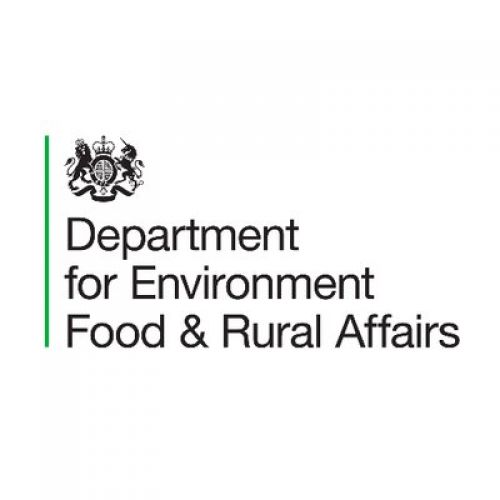 Government joined with organisations involved in gamebird management to issue revised guidance on bird flu and the way it can affect the activities of gamebird rearers.
Government joined with organisations involved in gamebird management to issue revised guidance on bird flu and the way it can affect the activities of gamebird rearers.
Published by eight game shooting, research and game conservation bodies, the new guidance is endorsed by Defra, the Scottish, Welsh and Northern Ireland governments. Click here to access it.
GFA writes for Shooting Times (16th January 2025)
 As of Autumn 2024, the GFA now contributes a monthly column to one of the UK’s most read shooting publications, Shooting Times. These articles cover a variety of relevant topics and will raise the profile of the organisation and improve understanding of the GFA and the role it plays in the wider shooting sector.
As of Autumn 2024, the GFA now contributes a monthly column to one of the UK’s most read shooting publications, Shooting Times. These articles cover a variety of relevant topics and will raise the profile of the organisation and improve understanding of the GFA and the role it plays in the wider shooting sector.
The GFA would like to thank Shooting Times for this opportunity and we encourage everyone to read these articles, one of which is reproduced below.
read more »Overwintering
Although it seems like the shooting season has only just got into full swing (especially if you are not fortunate enough to go grouse shooting in August or partridge shooting in September), for game farms the approach of Christmas brings the next rearing season in to sharp focus. Those that keep their own breeding stock will either have retained some of the previous seasons reared birds for breeding (known as overwintering) or they will rely on birds being caught-up before the end of the shooting season, either on their own shoot (if they have one) or on someone else’s.
Both catching-up and overwintering have pros and cons. Probably the biggest difference is cost. Overwintered birds will cost the game farmer upwards of £12 each by the start of the breeding season (having foregone the sale value of the bird as a poult and kept and fed it all through the autumn and winter). The price of caught up birds varies from year to year according to supply and demand, but they would rarely cost more than £3-6 and are sometimes advertised for a lot less. Obviously, overwintered birds are of known bloodstock. They do not pose the same risk of importing disease or parasites on site and their feeding regime can be carefully managed to ensure they are in optimum condition as the breeding season approaches. There is also certainty of supply (within reason – nothing can be guaranteed with livestock). When sold as ex-layers overwintered birds are often reported to wander far less than their caught-up cousins.
Avian Influenza (AI) has had an impact on this equation in recent years too. Prior to 2020 we had only seen sporadic outbreaks of AI with a break measured in years between them. This is now our 5th consecutive winter of AI. Catching-up when AI is present poses an obvious risk and several historic cases of AI in game birds have been triggered by infected birds being caught-up and then becoming captive rather than wild birds, creating a confirmed case and an Infected Premises. In the winter of 22-23 Defra introduced a 21-day standstill (or quarantine) that had to be observed before caught-up birds could leave their site of origin. This was part of the National Avian Influenza Prevention Zone (AIPZ) requirements and although not legally enforceable without the presence an AIPZ, there has been a push to get this widely adopted as best practice by the sector via the shooting organisations and schemes such as Aim to Sustain Shoot Assurance and Trusted Game. Indeed, any game farm bringing birds on-site without such precautions is courting disaster, and there has been at least one notable case in recent years where caught up stock brought AI onto a laying field with disastrous consequences.
Mycoplasma is also a concern, and some game bird vets believe that catching-up and moving birds around the country has contributed to the escalation of problems caused by this disease, which can be very difficult to detect and manage. Catching-up also places constraints on the shoot as it is illegal to catch-up after 1st February in England and Wales (28th February in Scotland) so there is a potential for conflict between shooting and catching-up. This is the origin of the traditional end of season “cock day(s)”.
The GFA has long held the position that overwintering is preferable, primarily from a disease control standpoint, but the issue is complex. The cost implication of overwintering is unavoidable, and this will inevitably translate into a higher cost of poults and consequently shooting. However, if overwintering puts the sector in a stronger position to defend its practices surely this is a price worth paying. Bloodlines, security of supply and health status are all highly valued in other livestock breeding programs. The response from these sectors to a breeding program that relies on catching-up whatever is available from the wild and breeding with it can only be imagined.
Caution over Catching-up (15th January 2025)
 With the current risk level for Avian Influenza (AI) standing at very high for wild birds the GFA is advising members to exercise extreme caution if they plan to catch-up birds themselves or buy in caught-up birds from third parties.
With the current risk level for Avian Influenza (AI) standing at very high for wild birds the GFA is advising members to exercise extreme caution if they plan to catch-up birds themselves or buy in caught-up birds from third parties.
During recent discussions the GFA has had with Defra, Scottish Government and Welsh Government, catching-up game birds was highlighted as an activity that should only be undertaken with due regard to the potential for disease transmission it involves. A regional avian influenza prevention zone (AIPZ) mandating enhanced biosecurity and housing for all types and sizes of kept bird, is in force in the East Riding of Yorkshire, City of Kingston upon Hull, Norfolk and Suffolk to mitigate the risk of further outbreaks of disease occurring. The AIPZ requires anyone catching-up in the area covered by it to observe a mandatory 21-day standstill (or quarantine) between birds being caught-up and then being moved to another premises. Keepers can check if they are in an avian influenza disease control or prevention zone using the Animal and Plant Health Agency’s (APHA) interactive map but the GFA is urging anyone involved in catching-up to adopt the 21-day standstill as best practice, regardless of any AI risk or AIPZ requirements.
read more »GFA Health and Welfare Chairman, Paul Jeavons said “Quarantining caught-up birds is simply a matter of common sense. There are other diseases we should be wary of apart from AI and to neglect this simple biosecurity measure seems foolhardy in the extreme to me, whether you are covered by the AIPZ or not.”
Mycoplasma is another disease that has the potential to devastate game farms and there is considerable evidence to suggest that moving caught-up birds around the country has exacerbated the problems caused by this unpredictable disease in recent times. This is one of the reasons the GFA has long advocated for overwintering breeding stock rather than relying on catching-up. The provenance of stock together with its health status mean that overwintered birds represent a much safer option than catching-up wild birds, although there is an obvious cost implication.
The GFA recently wrote about this subject in more detail in Shooting Times (published 4th December 2024). You can read the article here.
Bird Flu is Back (15th November 2024)
 On Tuesday 5th November 2024 the CVO (Chief Veterinary Officer) confirmed the first case of the 2024 AI season as HPAI H5N5 in a commercial free range egg laying unit in Yorkshire. This is the first case of HPAI H5N5 in captive birds in recent years and marks a shift away from the H5N1 strain that dominated the last AI outbreak which came to an end earlier this year after over 2 years. However, H5N1 is still being found in wild and captive birds across Europe and could easily reappear in the UK.
On Tuesday 5th November 2024 the CVO (Chief Veterinary Officer) confirmed the first case of the 2024 AI season as HPAI H5N5 in a commercial free range egg laying unit in Yorkshire. This is the first case of HPAI H5N5 in captive birds in recent years and marks a shift away from the H5N1 strain that dominated the last AI outbreak which came to an end earlier this year after over 2 years. However, H5N1 is still being found in wild and captive birds across Europe and could easily reappear in the UK.
All bird keepers are urged to remain vigilant and employ the most rigorous levels of biosecurity practicable. The H5N5 strain is highly pathogenic and results in very high mortality in susceptible birds, which includes pheasants. The same strain of AI (HPAI H5N5) had previously been found in wild pheasants in Worcestershire in September.
The risk level for wild birds has been increased from Medium to High.
The risk level for captive poultry is:
Medium (event occurs regularly) (with low uncertainty) where there is suboptimal or poor biosecurity.
Low (event is rare but does occur) (with low uncertainty) where good biosecurity is consistently applied at all times.
Avian Influenza Found in Released Pheasants (30th September 2024)
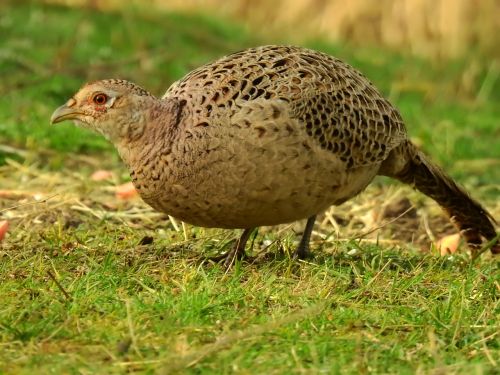 Highly Pathogenic Avian Influenza H5N5 has been found in pheasants in Worcestershire earlier this week. The birds were released in July and so have been classed as wild by APHA and will appear on their wild bird findings accordingly. As the birds are wild there are no disease control zones in place, and we will retain our country freedom status for trade purposes.
Highly Pathogenic Avian Influenza H5N5 has been found in pheasants in Worcestershire earlier this week. The birds were released in July and so have been classed as wild by APHA and will appear on their wild bird findings accordingly. As the birds are wild there are no disease control zones in place, and we will retain our country freedom status for trade purposes.
This is the first time this strain of H5N5 has been found in game birds and mortality is reported to be very high. This highlights the need for stringent biosecurity on all sites where birds are present, whether released birds on a shoot or captive birds on a game farm.
read more »The affected shoot is many miles from any other recent findings of H5N5 in wild birds (the nearest in recent weeks being Lincolnshire) and just goes to show that nowhere is safe. Anyone with birds on site, such as overwintered breeding stock, should be especially careful.
As the shooting season is now getting into full swing biosecurity on shoots should also be a high priority but everyone is urged to take their own precautions to ensure they don’t spread any infection when visiting other areas, either by taking it to other sites or bringing it back to their own site, whether shooting or for any other reason.
The Value of Shooting Report 2024 (5th June 2024)
 Rural organisations will today (4 June 2024) publish the latest ‘Value of Shooting’ report which will set out in detail the benefits the shooting sector brings to the UK economy and the conservation of the countryside.
Rural organisations will today (4 June 2024) publish the latest ‘Value of Shooting’ report which will set out in detail the benefits the shooting sector brings to the UK economy and the conservation of the countryside.
The key findings will play an important role in shaping the debate around shooting in the run up to the general election and beyond. With the gap closing between the Conservatives and Labour in the 100 most rural constituencies, issues that affect the countryside and the rural economy will likely be a key battleground in the election.
read more »Shooting is a key component of the rural economy and goes hand-in-hand with the conservation of the countryside, as well as bringing both mental and physical health benefits to participants and providing a healthy and sustainable food source.
The new Value of Shooting report was commissioned by 24 rural organisations and carried out by Cognisense, a market research and data analytics firm. The report will set out the following headline figures:
- Shooting is worth £3.3bn (GVA) to the UK economy every year.
- The new report has taken a more comprehensive and detailed approach than previous reports, attaching a value to contribution in kind (CiK) and supply chain value, which shows that £9.3bn of wider economic activity is generated for the UK economy.
- 620,000 individuals are actively involved in shooting-related activities.
- Shooting providers and volunteers carry out £500m worth of conservation work, equivalent to 26,000 full-time jobs and 14m workdays each year.
- Habitat management and conservation are carried out on 7.6m hectares as a result of shooting.
- Three out of four people who take part in shooting said that it is important to them and their personal wellbeing, with most claiming shooting specifically contributes positively to their physical and mental health.
- Shooters spend £4.4bn on their UK-based supply chain each year.
Dominic Boulton of the GFA said “The publication of the Value of Shooting Report is long awaited and will be invaluable in promoting our sector and the important story that shooting has to tell. The GFA is proud to be one of the partner organisations that have contributed to this important project.”
To read a copy of the report, click here.
Bird Flu Outbreak Over (11th April 2024)
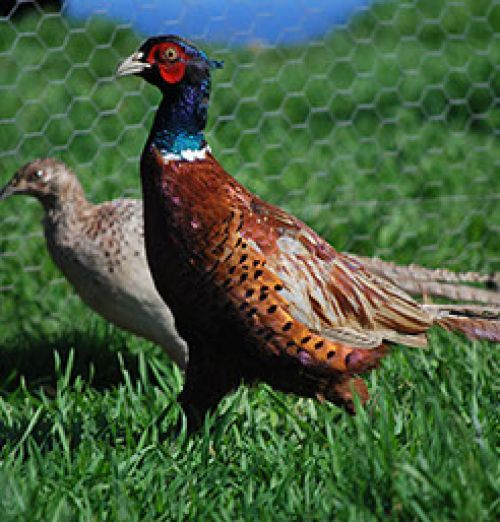 On the 29th of March the UK Government submitted its declaration of country freedom from Avian Influenza (AI) to the World Organisation for Animal Health (WOAH). Although it can take a few weeks for WOAH to update their records this action signals the official end to the recent prolonged outbreak of AI that began back in October 2021. Defra has also reduced the wild bird risk level from medium to low.
On the 29th of March the UK Government submitted its declaration of country freedom from Avian Influenza (AI) to the World Organisation for Animal Health (WOAH). Although it can take a few weeks for WOAH to update their records this action signals the official end to the recent prolonged outbreak of AI that began back in October 2021. Defra has also reduced the wild bird risk level from medium to low.
The GFA’s Dominic Boulton (who represents the game sector at the Defra’s National Avian Disease Core Group said. “This is very welcome news, and it has been a long time coming. However, we are very aware that the AI virus is still circulating in the wild bird population so game farmers and shoots still need to be very vigilant and maintain high standards of biosecurity. Let’s hope the whole game management sector can look forward to a rearing and releasing season without any significant impact from AI. Assuming the summer sees the UK remain free of AI disease control zones, the next big risk period will be in the autumn when migratory wildfowl return to our shores, but it is far too early to start speculating about how next AI season might play out.”
Changes to the UK Poultry Register Unveiled (28th March 2024)
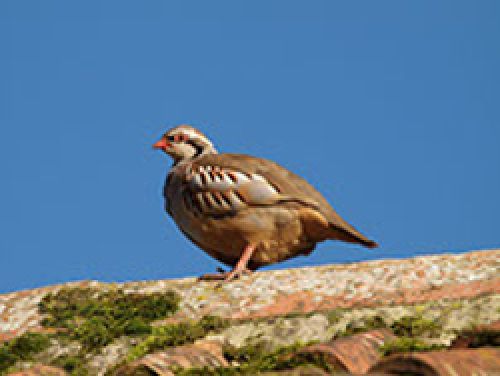 The Government has confirmed that it will introduce changes to the UK Poultry Register following the consultation it carried out in 2023. From 1st September in Scotland, and 1st October in England and Wales, it will be a legal requirement for the keeper of any bird or birds (other than pets that never leave the house) to register.
The Government has confirmed that it will introduce changes to the UK Poultry Register following the consultation it carried out in 2023. From 1st September in Scotland, and 1st October in England and Wales, it will be a legal requirement for the keeper of any bird or birds (other than pets that never leave the house) to register.
The previous threshold of 50 birds has been removed so that a single bird now triggers the requirement to register, whilst the scope has been widened to include all birds rather than just poultry. (Game birds were included in the definition of poultry in this context).
read more »Since anyone releasing 50 or more game birds is already legally required to register his will not impact them. However, under the new rules, a single decoy bird in a Larsen trap will trigger a requirement to register and for those such as operators of wild bird shoots including grouse moors, this will be an important change.
There will be a new simplified registration process set up by Defra that will be available to anyone registering less than 50 birds (those compelled to register by the new rules who didn’t previously need to). This registration system will be available throughout the UK. Those with 50 or more birds will still need to register through the current system for their country.
Long-Awaited General Licence for Game Bird Release on Protected Sites Published (26th March 2024)
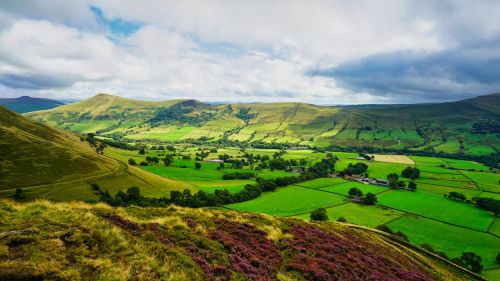 Following the debacle that blighted the game management sector in 2023 when new restrictions were introduced to releasing on Special Areas of Protection (SPA’s) by Defra just 21 days before the GL 43 licence was renewed, GL 45 has finally been published after several delays.
Following the debacle that blighted the game management sector in 2023 when new restrictions were introduced to releasing on Special Areas of Protection (SPA’s) by Defra just 21 days before the GL 43 licence was renewed, GL 45 has finally been published after several delays.
As last year, SPA’s are excluded from the GL 43 licence which was first introduced as a temporary measure in 2021. Almost all SPA’s will instead be covered by GL 45 which has additional conditions that must be adhered to. Anyone unable to comply with the conditions set out in GL 45 may still apply for an individual licence for their release.
The new GL 45, which includes details of which SPA’s are included, can be seen here and the GFA urges all members who may be affected by this (either directly or as a result of their customers being affected) to examine the licence and ensure they are familiar with its content.
DEFRA's announcement about licencing the release of game birds on and near protected sites in 2024 (1st March 2024)

Defra makes long awaited announcement about licencing the release of game birds on and near protected sites in 2024.
Click here to read the announcement in full.
Announcement from the Secretary of State for Environment, Food & Rural Affairs regarding gamebird licensing for 2024. (2nd February 2024)
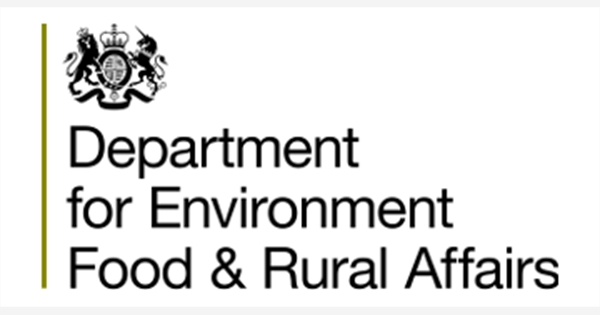 The Secretary of State for Environment, Food & Rural Affairs have made an announcement regarding gamebird licensing for 2024.
The Secretary of State for Environment, Food & Rural Affairs have made an announcement regarding gamebird licensing for 2024.
Click here to read in full the letter sent yesterday by The Rt Hon Steve Barclay MP.
GFA backs Aim to Sustain's Plea on Catching-Up (21st December 2023)
 The GFA is echoing Aim to Sustain's call for anyone catching-up this season to observe the 21-day standstill introduced by DEFRA last January. The GFA is also calling on all of its members not to accept caught-up birds from any source unless they are confident that the 21-day standstill has been observed.
The GFA is echoing Aim to Sustain's call for anyone catching-up this season to observe the 21-day standstill introduced by DEFRA last January. The GFA is also calling on all of its members not to accept caught-up birds from any source unless they are confident that the 21-day standstill has been observed.
Click here for more information.
Bird Flu Still a Threat to the Shooting Sector (6th December 2023)
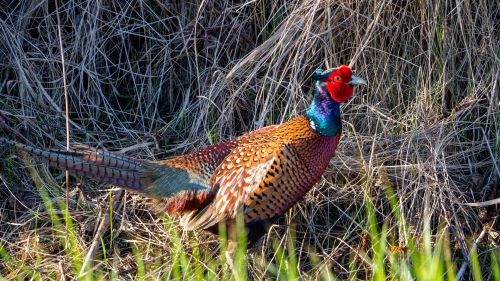 Although the current outbreak of Avian Influenza (AI) or bird flu has waned considerably the shooting sector must not become complacent, warns Dominic Boulton, Game Sector Representative on the Governments National Avian Disease Core Group.
Although the current outbreak of Avian Influenza (AI) or bird flu has waned considerably the shooting sector must not become complacent, warns Dominic Boulton, Game Sector Representative on the Governments National Avian Disease Core Group.
“We are in a much better place than we were 12 months ago, but AI is still a major concern for the game sector as well as the whole of the poultry industry. Wild birds are still testing positive, although in much lower numbers, and sadly we have had 2 new cases in captive birds in the last week or so. It is vital that the shooting world continues to maintain high standards of biosecurity and remain vigilante for signs of the disease. If we let our guard down, there is a very real risk that there could be a resurgence in the outbreak just when it seems we are approaching the tail of it. Quite what will happen next spring is anyone’s guess, but it would be a disaster for the shooting sector to be implicated in a spiralling of the outbreak at this sensitive time” warns Dominic.
Game Farms with overwintered breeding stock will be feeling particularly vulnerable as they have captive birds on-site throughout the year and through the winter period when the risks are generally at their highest. Good biosecurity is the best defence to protect overwintered birds and all GFA members who overwinter their breeding stock are advised to consult with their game bird vet to determine the most suitable biosecurity protocols for their situation.
read more »Transfer of Assurance Scheme to Aim to Sustain Finalised (4th December 2023)
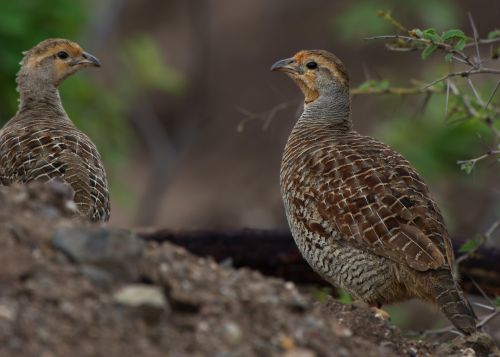 The recently announced transfer of the BGA Assurance scheme to Aim to Sustain has now been completed and henceforth the scheme will be operated and administered by Aim to Sustain and an Assurance Advisor has been appointed to assist with all aspects of the scheme.
The recently announced transfer of the BGA Assurance scheme to Aim to Sustain has now been completed and henceforth the scheme will be operated and administered by Aim to Sustain and an Assurance Advisor has been appointed to assist with all aspects of the scheme.
Mike Fellows was previously heavily involved in delivering training for the National Gamekeepers Organisation and brings a great deal of knowledge and experience to his new post as the Aim to Sustain Assurance Advisor.
read more »A comprehensive review of the scheme is well under way and is virtually complete for the Lowland Shoot Assurance Scheme. Reviews of both the Upland Shoot Assurance Scheme and the Game Farm Assurance Scheme are progressing well, the Game Farm Scheme review panel being led by GFA Chairman George Davis, with input from other GFA committee members and from the gamebird veterinary community. The review of the Upland scheme is expected to be finalised early in the New Year with the review if the Game Farm scheme following in early spring, ready for next year’s rearing season.
The GFA will be providing more information to its members regarding the Game Farm Assurance Scheme in due course but in the meantime more information can be found by clicking on the link below:
DEFRA confirms renewal of General Licences for the control of Pest Birds (26th November 2023)
 DEFRA has recently confirmed to the GFA and others that they intend to renew the current GL 40, GL 41 & GL 42 for the control of pest bird species and these new licences will replicate the conditions of the current licences.
DEFRA has recently confirmed to the GFA and others that they intend to renew the current GL 40, GL 41 & GL 42 for the control of pest bird species and these new licences will replicate the conditions of the current licences.
After the disruption caused to the sector by the mishandling of GL 43 (for releasing game birds on or near protected sites) last summer this comes as a huge relief. There was considerable concern that a request for information about how the licences are used, and how their use impacts wild birds, could be a precursor to these licences being treated similarly to GL 43 with Avian Influenza being used as the justification.
read more »Following a united effort to across the Aim to Sustain partner organisations, including a face-to-face meeting in Whitehall with a senior DEFRA minister common sense seems to have prevailed for once. The current licences expire on 31st December and will be replaced with new 2-year licences that come into force on 1st January 2024.
As usual, there is the caveat that “ We will continue to assess any new and emerging evidence concerning risks associated with the control of wild birds authorised by GL40-42. If any evidence emerges which necessitates modification of any of the conditions in the licence instruments, we will endeavour to ensure licence users have enough time to adjust to any operational changes that may be required”.
Management of game assurance scheme transferring from BGA to Aim to Sustain (16th October 2023)
![]() The infrastructure of the assurance scheme built by British Game Assurance (BGA) will be transferred to Aim to Sustain (A2S), it was announced today (Monday October 16th).
The infrastructure of the assurance scheme built by British Game Assurance (BGA) will be transferred to Aim to Sustain (A2S), it was announced today (Monday October 16th).
The transfer should be completed later in the Autumn and in the meantime, the scheme remains unchanged and open to new members. Following completion, Aim to Sustain will take over and lead the next evolution of game assurance. As a partnership of eight different organisations with an interest in game management and shooting, and a dedication to high standards and self-regulation, Aim to Sustain is uniquely placed to expand and build on the invaluable work of the BGA since it launched in 2018.
read more »The Aim to Sustain Game Assurance Scheme will allow game farms, game shoots and estates to demonstrate publicly that they operate to the highest standards, which has been independently verified by an accredited external auditor.
These standards include assessment of animal health and welfare, food quality, environmental enhancement and protection, appropriate stocking levels, staff training and health and safety.
The scheme guarantees the quality of game meat for consumers through the Aim to Sustain assurance stamp, so they know that their game comes from an audited, high-quality source.
Aim to Sustain’s operations director Spike Butcher said: “Everybody involved in Aim to Sustain appreciates the significant amount of work that BGA has put into developing the scheme, with an impressive reputation fostered in the sustainable game management sector. Having such a strong platform in place will give the scheme the best possible chance of succeeding under the new management of Aim to Sustain.
“All eight partner organisations and our scientific advisor, the Game and Wildlife Conservation Trust, now have ‘skin in the game’. With investment in the scheme through commitment of time, effort and resource, the game shooting community will strengthen collaboration further to ensure that effective self-regulation is in place and visibly doing its job. All major organisations in the sustainable game management sector now have direct responsibility for self-assurance - this is a major step in the right direction.”
BASC chief executive Ian Bell said: “BASC has helped to nurture the BGA since its beginning and we look forward to seeing game assurance grow as the Aim to Sustain partners take on the responsibility for game assurance from the BGA
“With all the Aim to Sustain partners fully committed to self-regulation and best practice within our sector, together we are in a strong position to take the assurance scheme and develop and grow it.
“Assurance is a critical element of self-regulation. It allows shoots, estates and game farms to provide evidence of their high welfare standards, safe wild harvest and food production and positive environmental effects. This evidence is important to help us tell the good news stories about game shooting and game management.”
Country Land and Business Association President Mark Tufnell said: “The launch of the Aim to Sustain Game Assurance Scheme is a vital next step in continuing to demonstrate effective self-regulation, and we encourage everyone involved in the sector to get behind it and be part of assurance.
“Game meat is a healthy, nutritious and sustainably-produced option, and this scheme can help consumers and the public be confident that meat has been produced to the highest standards.”
Countryside Alliance chief executive Tim Bonner said: “The future of game shooting is reliant on public and political perception and shoot assurance and wider sector self regulation are critical to that perception. It is critical that we can promote all the environmental, economic and social benefits of sustainable game management.”
Louisa Clutterbuck, CEO of Eat Wild and formerly British Game Assurance, said: “We believe that this transfer to Aim to Sustain will propel assurance adoption to the next level, allowing our team to concentrate on the vital task of promoting game, encompassing both feathered and venison options for the table, to the wider public. We take immense pride in the achievements of the BGA to date. I want to emphasize my personal gratitude to every one of our supporters for their loyal and dedicated assistance over the years.
GFA chairman George Davis said: “The GFA has been a staunch supporter of assurance since its inception by the BGA and indeed, were instrumental in developing the Game Farm Assurance scheme along side the BGA. We are looking forward to having greater involvement in the promotion of Game Farm Assurance to the game farming community through our partnership in Aim to Sustain. The GFA believe Assurance is vital to help secure the future of our members and the wider shooting sector.”
GWCT director Advisory and Education Dr Roger Draycott said: “The transfer of the assurance scheme to A2S is a very significant move towards ensuring shoots achieve the huge conservation benefits we know game management can deliver. As A2S’s independent scientific advisor we would encourage shoots to join the scheme, which is in line with GWCT’s science-based Guidelines for Sustainable Gamebird Releasing. When game managers apply best practice measures, they can double the wildlife in the farmed environment and demonstrate their vital role in national nature recovery.”
Moorland Association director Amanda Anderson said: “Grouse is one of the most delicious and healthy meats available in the UK and is of exceptional seasonal and regional provenance. The development of the assurance scheme over the past five years has proven to be of enormous benefit in documenting how game is sustainably produced, handled and distributed. The sector is under constant scrutiny and so the ability to dispel some of the myths about grouse moors is invaluable. We are excited to see the continued development of national and international markets for game over the coming years.”
NGO chairman David Pooler said: “The National Gamekeepers’ Organisation believes that self-regulation is vital for the future of shooting and game management more widely. This is a view we have been working hard to reinforce among our members. Demonstrating the high welfare standards and the positive conservation benefits of game management is hugely important for all of us. Assurance plays a significant role in encouraging self-assurance among the shooting community, and we hope that by working together things will go from strength under the new banner of Aim to Sustain.”
Scottish Land & Estates chairman Dee Ward said: “SLE has strongly supported the development of a shoot and game farm assurance scheme over the last five years, and believe it is a good move for it now to come under the administrative umbrella of Aim to Sustain. Game shooting is an important rural land use sector in Scotland and a rigorous assurance scheme is the best way to ensure we have a sector that is delivering best practice for nature, biodiversity and climate, and to build confidence with politicians and the public that it is being carried out sustainably. SLE has led the way with the Wildlife Estates Scotland initiative and we hope that A2S Game Assurance will work alongside it, and will help all our members with shooting interests to take advantage of it.”

Stand with us against United Utilities' irrational decision to ban shooting (31st July 2023)
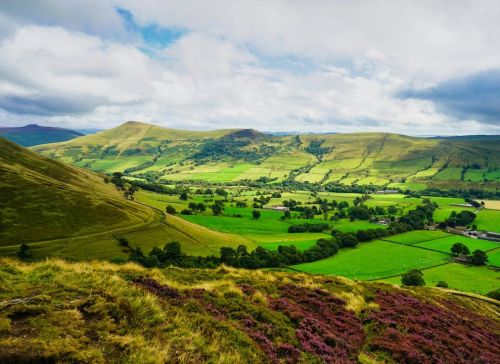 The recent announcement that United Utilities will not be renewing shooting leases on its land, citing water quality concerns, lacks any substantiated evidence. It appears to be a diversion tactic to distract attention from their own environmental shortcomings as England's worst polluting water company.
The recent announcement that United Utilities will not be renewing shooting leases on its land, citing water quality concerns, lacks any substantiated evidence. It appears to be a diversion tactic to distract attention from their own environmental shortcomings as England's worst polluting water company.
United Utilities’ landholdings are enormous, encompassing the Forest of Bowland, the Goyt Valley, Longdendale Valley, and the West Pennines.
Under pressure, United Utilities is attempting to sacrifice shooting to cover its own environmental shortcomings. Banning shooting on their land will wreak havoc on biodiversity, conservation efforts, and rural livelihoods.
Join us in standing up for the countryside, our environment and the thousands of people who depend on shooting, by telling United Utilities to reverse their ill-thought-through decision immediately.
Stand with us and sign our Aim to Sustain partner organisation's e-lobby today.
GFA represented at this year's Game Fair (28th July 2023)
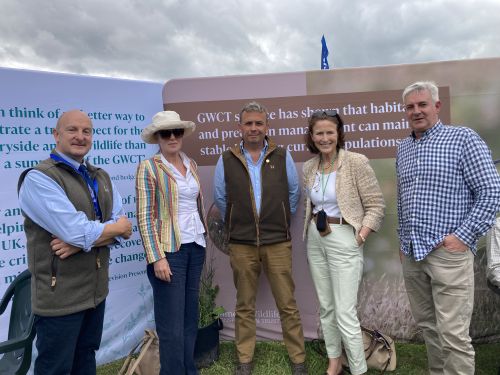 Both GFA chairman George Davis, and Political and PR consultant Dominic Boulton, were on hand to represent the GFA at this years Game Fair at Ragley Hall (July 28-30). Along with the launch of BASC’s Wildlife Fund and GWCT’s Think Piece on predation management, they also attended meetings about United Utilities, GL 43 licencing issues and Avian Influenza.
Both GFA chairman George Davis, and Political and PR consultant Dominic Boulton, were on hand to represent the GFA at this years Game Fair at Ragley Hall (July 28-30). Along with the launch of BASC’s Wildlife Fund and GWCT’s Think Piece on predation management, they also attended meetings about United Utilities, GL 43 licencing issues and Avian Influenza.
The picture to the right shows GWCT’s Roger Draycott (left) with GWCT Welsh Director Sue Evans (2nd left) Chief Executive Teresa Dent (2nd right) with GFA’s George Davis and Dominic Boulton following a meeting to discuss the issues surrounding GL 43 licences, over which the two organisations have collaborated to try to alleviate some of the impacts caused by DEFRA and Natural England’s handling of the licencing regime for game bird release on or near protected sites.
read more »
Pictured below is BASC Chairman Eoghan Cameron at the launch of BASC’s Wildlife Fund, which makes funds available for a wide range of conservation projects across the country.
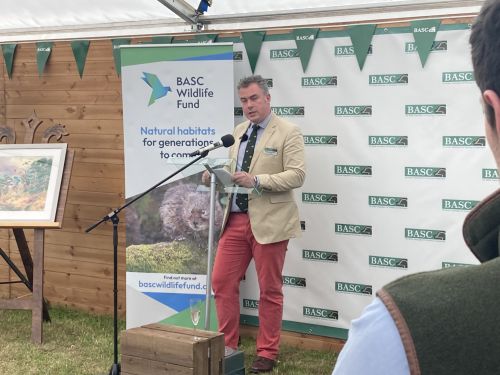
GFA at the Royal Welsh Show (26th July 2023)
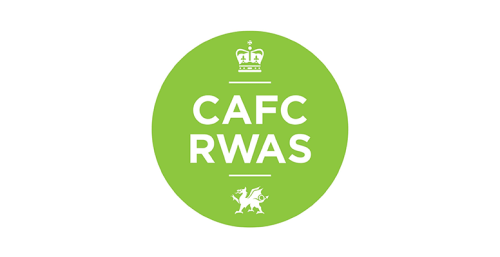 On 25 July the GFA were represented at the Royal Welsh Show, both at an Avian Influenza (AI) Meeting with Welsh Government and at a meeting with other Aim to Sustain partners to discuss next steps in the ongoing battle to save Game Shooting in Wales in the aftermath of the Welsh Governments recent Consultation on game bird releasing.
On 25 July the GFA were represented at the Royal Welsh Show, both at an Avian Influenza (AI) Meeting with Welsh Government and at a meeting with other Aim to Sustain partners to discuss next steps in the ongoing battle to save Game Shooting in Wales in the aftermath of the Welsh Governments recent Consultation on game bird releasing.
At the Welsh Government Pavilion not only was the GFA represented at the meeting, but Ian Jones of Hafren Vets (GFA trade member) was one of the speakers alongside other experts. The meeting brought attendees up to speed with the latest developments in the AI situation in Wales with input from the Welsh Chief Veterinary Officer, APHA and our own Ian Jones, who provided the game sector perspective.
The meeting also launched a series of webinars for stakeholders, the first of which is a dedicated game sector webinar on August 2nd from 2-4pm. This remote event can be accessed by computer and will allow participants to ask questions via the chat function, in addition to having presentations from several experts in the field. Anyone interested in attending should register for the event by clicking here. Please note that a recording of the webinar will be available to download afterwards for those unable to attend the live event.
read more »The picture below shows Ian Jones of Hafren Vets (far left, seated) waits his turn to present to the meeting while Welsh CVO Richard Irving (standing) addresses the room and Ashley Banyard and Richard Hepple of APHA (seated at the table) are on hand to answer technical questions from the floor.
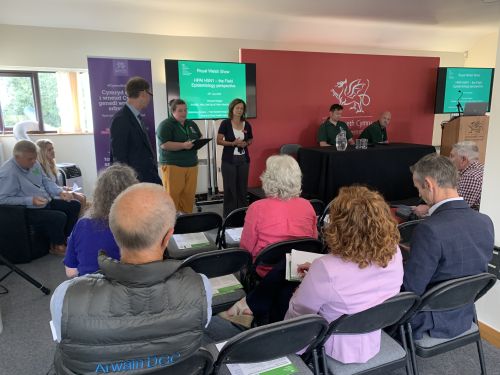
GFA launches 2023 Joint Communication on Antibiotic Reduction (30th June 2023)
As the second phase of optimising antibiotic use in Livestock sectors, RUMA’s Targets Taskforce 2 https://www.ruma.org.uk/targets-task-force-2/ (TTF2), draws to a close, the game sector, along with some others, needs to maintain focus on further reductions, alongside responsible use.
If we are to meet the target that we set ourselves for the TTF2 period, which ends in 2024, we will need to make significant further reductions in 2023.
read more »For more information, click here for summary figures from the 2022 collection, along with some reinforcement of the rules and regulations as well as some exciting initiatives to help take our sector forward. As we look to make further sustainable reductions in the prescription of antibiotics, there needs to be greater focus on improving systems, raising welfare standards and research so that we create a sector that is less prone to disease challenges and is consequently less dependent on medication.
GL43 Letter to Secretary of State for the Environment (8th June 2023)
 The GFA, along with our partner organisations at Aim to Sustain, have written to the Secretary of State for the Environment about the unacceptable renewal of the General Licence 43 (GL 43) which licences the release of gamebirds on or within 500 metres of European Protected Sites such as Special Protection Areas (SPA’s) and Special Areas of Conservation (SAC’s). You can read a copy of the letter here.
The GFA, along with our partner organisations at Aim to Sustain, have written to the Secretary of State for the Environment about the unacceptable renewal of the General Licence 43 (GL 43) which licences the release of gamebirds on or within 500 metres of European Protected Sites such as Special Protection Areas (SPA’s) and Special Areas of Conservation (SAC’s). You can read a copy of the letter here.
Previously GL 43 covered all such protected sites subject to agreed stocking densities, above which an individual licence was required. The new licence, which has a 24-month lifespan, only applies to SAC’s, meaning that all releases on SPA’s will now need an individual licence, regardless of the stocking density.
This change has been announced far to late to enable shoot managers to accommodate it and there are serious concerns about Natural England’s ability to resource their role in the licencing regime. In addition, there are serious welfare concerns about birds already scheduled for release should a licence be refused or not processed in a timely fashion. There are also questions surrounding the decision-making process that has led to this. There has been absolutely no engagement with the shooting sector, a complete lack of transparency throughout and a failure to produce robust scientific justification for the change, which Natural England claims is necessary to protect wild bird populations in affected areas from Avian Influenza.
Act now to save shooting! (12th May 2023)
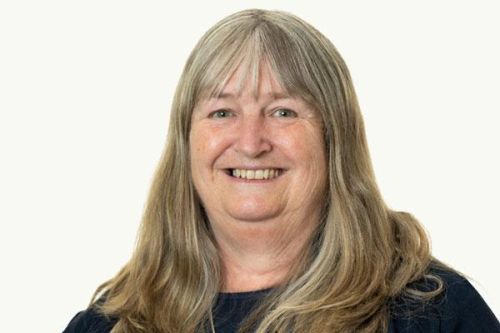 Welsh Climate Change Minister Julie James shows her true colours at the Welsh Senedd, Click here to see her response to a question about the contribution the shooting sector makes to conservation. Is this democracy in action, or is it something far more sinister?
Welsh Climate Change Minister Julie James shows her true colours at the Welsh Senedd, Click here to see her response to a question about the contribution the shooting sector makes to conservation. Is this democracy in action, or is it something far more sinister?
You have until 20th June to respond to the Welsh Government Consultation on the licencing of the release of game birds. If this proposal goes ahead, how long do you think game shooting will survive in the hands of the Welsh Government?
Click here to respond to the consultation.
Welsh Government launches Consultation to licence game bird releasing in Wales (24th April 2023)
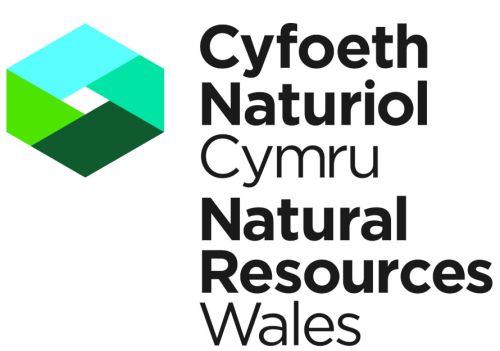 On 27 March 2023, Natural Resources Wales launched a 12-week consultation on proposals to introduce a licensing system for the release of pheasants and red-legged partridge in Wales.
On 27 March 2023, Natural Resources Wales launched a 12-week consultation on proposals to introduce a licensing system for the release of pheasants and red-legged partridge in Wales.
If these proposals are implemented, it will be illegal to release pheasants and red-legged partridges in Wales, except under licence. This will give an anti-shooting Welsh Government the power to shut down game shooting in Wales.
The GFA is opposed to the proposed licensing of gamebird releasing in Wales because there is sufficient regulation in place and there is no evidence to justify these proposals. All GFA members could potentially be impacted by this consultation, either directly, or because of the precedent it could set for wider dissemination throughout the UK in future.
read more »The consultation is not evidence based and we are calling on everyone to act now to protect shooting in Wales by saying no to the proposals.
The consultation closes on June 20th.
Click here to read the consultation in full.
You can respond to this consultation by clicking respond and including some or all of the following information in your response. Alternatively, If you have a shoot or business that could be directly impacted by the proposals and need further guidance for your response, please email dominic@gfa.org.uk
Q1: Give your name.
Q2: Give your email address (optional).
Q3: Ignore unless you represent an organisation.
Q4: Say no. This is a proposed ban on releasing gamebirds which would shut down game shooting in Wales. The Welsh Government has made it clear on several occasions, most recently in a letter dated 2nd November 2021 from Julie James AS/MS, Minister for Climate Change, to Aim to Sustain stating that ‘the Welsh Government do not support the shooting of live quarry as a leisure activity’. The current proposals would enable the Welsh Government to ban game shooting by preventing or severely restricting gamebird releasing in the future. The timing of this consultation, before all the evidence is available, clearly shows that this is being politically driven and is not evidence based. Government commissioned research on the impact of gamebird releasing is ongoing, and safeguards are already in place for gamebird releasing on protected sites.
Q5: Say no. As I do not accept the need for common pheasant and red-legged partridge to be added to Schedule 9 of the Wildlife and Countryside Act 1981 in Wales. There is simply not enough evidence to justify the extent of the current proposals and the effective wholesale licensing of game shoots in Wales. A licensing regime is unnecessary and unworkable and can be removed at any time, resulting in an automatic gamebird releasing ban.
Q6: Say no. As I do not accept the need for licensing in Wales. I believe that allowing the sector to self-regulate based on GWCT guidelines for sustainable gamebird releasing is the right course of action. There is simply not enough evidence to justify the extent of the current proposals and the effective wholesale licensing of game shoots in Wales. There is already a strong ethos of self-regulation for gamebird releasing. GWCT guidelines have been part of the Code of Good Shooting Practice for decades and compliance is high. Furthermore, the proposal for red-legged partridge is not fit for purpose as it does not recognise how their release is managed.
Q7: Say no. As I do not accept the need for licensing in Wales. I believe that allowing the sector to self-regulate based on GWCT guidelines for sustainable gamebird releasing is the right course of action. There is simply not enough evidence to justify the extent of the current proposals and the effective wholesale licensing of game shoots in Wales. There is already a strong ethos of self-regulation for gamebird releasing. GWCT guidelines have been part of the Code of Good Shooting Practice for decades and compliance is high.
Q8: Say no. As I do not accept the need for licensing in Wales. There is simply not enough evidence to justify the extent of the current proposals and the effective wholesale licensing of game shoots in Wales. This would add even more confusion to an already unnecessary and unworkable licensing regime.
Qs 9-12: The last four questions invite views on whether the proposals could in any way affect opportunities for people to use the Welsh language. You can skip these questions if you have no comments to make.
Avian Influenza Latest (11th April 2023)
 Huge relief for Game Farms as DEFRA and the Welsh Govt. announce plans to lift the Housing Order in England and Wales in response to falling risk levels. This is very welcome news for the whole shooting sector since it is the Housing Order that prevents game being released across the whole area that it affects, in this case the whole of England and Wales (Scotland did not impose a Housing Order this winter).
Huge relief for Game Farms as DEFRA and the Welsh Govt. announce plans to lift the Housing Order in England and Wales in response to falling risk levels. This is very welcome news for the whole shooting sector since it is the Housing Order that prevents game being released across the whole area that it affects, in this case the whole of England and Wales (Scotland did not impose a Housing Order this winter).
However bird keepers are urged to maintain scrupulous biosecurity standards as the risk of avian influenza continues.
DEFRA's press release follows:
read more »Mandatory housing measures for poultry and captive birds, which were introduced across England and Wales to help stop the spread of bird flu, will be lifted from 00:01 on Tuesday 18 April 2023, the Chief Veterinary Officer has confirmed today following a latest assessment of the risk level.
Following ongoing monitoring using the latest scientific evidence and a robust risk assessment, bird flu risk levels have been reduced meaning poultry and other captive birds will no longer need to be housed and can be kept outside, unless they are in a Protection Zone. The decision means that from 18 April, eggs laid by hens with access to outside range areas can return to being marketed as ‘Free-Range’ eggs.
The scale of avian influenza outbreaks across the UK and Europe have been unprecedented with over 330 cases confirmed across the country since late October 2021. While the risk of bird flu has been reduced to ‘medium’ for premises with poor biosecurity, the enhanced biosecurity requirements that were brought in as part of the Avian Influenza Prevention Zone (AIPZ) will remain in force as infection may still be circulating in the environment for several more weeks. The risk of bird flu remains assessed as low where good biosecurity is applied.
Those who intend to allow their birds outside are advised to use the upcoming days to prepare their outside areas for the release of their birds. This will include cleansing and disinfection of hard surfaces, fencing off ponds or standing water and reintroduction of wild bird deterrents.
Dr Christine Middlemiss, the UK’s Chief Veterinary Officer, said:
“Whilst the lifting of the mandatory housing measures will be welcome news to bird keepers, scrupulous biosecurity remains the most critical form of defence to help keep your birds safe.
“It is thanks to the hard work of all bird keepers and vets who have played their part in keeping flocks safe this winter that we are in a position to take this action. However, the unprecedented nature of this outbreak has proven it’s more important than ever for bird keepers to remain vigilant for signs of disease and maintain stringent standards of biosecurity.”
Scrupulous biosecurity is the most effective method of disease control available and all bird keepers should apply enhanced measures at all times to prevent the risk of future outbreaks.
Poultry and captive bird keepers must:
- cleanse and disinfect clothing, footwear, equipment and vehicles before and after contact with poultry and captive birds – if practical, use disposable protective clothing
- reduce the movement of people, vehicles or equipment to and from areas where poultry and captive birds are kept, to minimise contamination from manure, slurry and other products, and use effective vermin control
- thoroughly cleanse and disinfect housing on a continuous basis
- keep fresh disinfectant at the right concentration at all farm and bird housing entry and exit points
- minimise direct and indirect contact between poultry and captive birds and wild birds, including making sure all feed and water is not accessible to wild birds
be vigilant for any signs of disease in their birds and any wild birds, and seek prompt advice from their vet if they have any concerns.
We would encourage all keepers to register their flocks with us. For poultry this is a legal requirement if you have 50 birds or more (poultry includes chickens, ducks, turkeys, geese, pigeon (bred for meat), partridge, quail, guinea fowl and pheasants). Registering with us means that we will be able to contact you with information or action required should an outbreak happen near you. We recently announced a consultation on proposals to require all poultry keepers to officially register their birds (consultation closes at 23:45 on 31 May 2023).
The UKHSA advise that the available evidence suggests viruses currently circulating in birds in the UK do not spread easily to people and food standards bodies advise that avian influenzas pose a very low food safety risk for UK consumers. There is no impact on the consumption of properly cooked poultry products, including eggs.
Bird keepers should report suspicion of disease in England to the Defra Rural Services Helpline on 03000 200 301, in Wales contact 0300 303 8268. In Scotland, contact your local Field Services Office. In Northern Ireland contact DAERA on 0300 200 7840 or your local DAERA Direct Regional Office. Keepers should familiarise themselves with our avian flu advice.
Members of the public are reminded not to touch dead wild birds and are encouraged to report findings of dead wild birds using the new online reporting system or by calling the Defra helpline (03459 33 55 77).
Meeting with L'envol De'Retz (16th February 2023)
 Earlier this week, GFA’s Dominic Boulton met with Olivier Dechevigne of L'envol De’Retz to discuss the outlook for French imports this year. Although some disruption looks inevitable, the situation is far more positive than the one that developed last year and several key factors that contributed to the perfect storm of 2022 no longer apply, making a repeat of last year very unlikely, although obviously nothing is guaranteed.
Earlier this week, GFA’s Dominic Boulton met with Olivier Dechevigne of L'envol De’Retz to discuss the outlook for French imports this year. Although some disruption looks inevitable, the situation is far more positive than the one that developed last year and several key factors that contributed to the perfect storm of 2022 no longer apply, making a repeat of last year very unlikely, although obviously nothing is guaranteed.
The change to 30 days will be a big help in reducing the impact that restrictions will have. All we can do now is keep positive, plan for the worst, and hope for the best.
read more »DEFRA update the shooting sector on plans to minimise disruption to international trade caused by Avian Influenza (9th February 2023)
 DEFRA update the shooting sector on plans to minimise disruption to international trade caused by Avian Influenza.
DEFRA update the shooting sector on plans to minimise disruption to international trade caused by Avian Influenza.
Read the letter from The Rt Hon Lord Benyon, Minister for Biosecurity, Marine and Rural Affairs by clicking the link below:
Avian influenza 90-day movement restriction to be cut by two-thirds (25th January 2023)
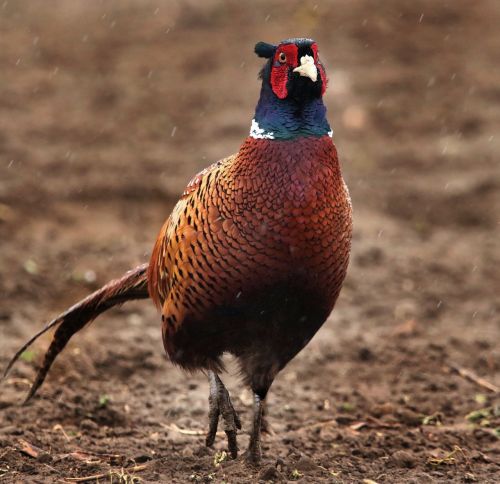 Leading shooting organisations are hoping that a change in trade regulations between EU and non-EU countries could reduce delays to the import of gamebirds.
Leading shooting organisations are hoping that a change in trade regulations between EU and non-EU countries could reduce delays to the import of gamebirds.
The change will see the surveillance period and restriction of exporting poultry out of the EU, following a confirmed case of avian influenza, reduced from 90 days to a minimum of 30 days.
The European Commission has published a Delegated Act which changes the time period and is due to come into force on 6th February 2023. In addition, Defra has received Ministerial clearance to implement a reciprocal arrangement. The precise date for the relevant changes to be fully enacted in the UK will be publicised once confirmed.
The new trade rule between the EU and non-EU countries will now align with the trade agreement within the EU bloc.
read more »Dominic Boulton, of the Game Farmers’ Association, said: “The 90-day surveillance period exacerbated gamebird supply chain issues last summer. By cutting the time frame by up to two-thirds it is hoped trade can be freed up at no greater risk of spreading the disease. While there remain several unanswered questions regarding the changes, the news should provide gamekeepers and shoot owners with a degree of clarity for when they are making decisions on sourcing gamebirds for next season."
Dominic continued. "With the risk of further avian influenza outbreaks remaining high, it is important to acknowledge that this change will not be a so-called ‘silver bullet’ for the sector. The 30-day period remains a minimum amount of time and in most cases the required disease control and surveillance activity will take longer, which has the potential to disrupt plans. The decisive action by both EU and UK parties in response to the concerns of the gamebird and wider poultry sector has provided reassurance that everything is being done that can be to ensure smooth trade between countries.”
Catching-Up – New Rules and How They Affect You (12th January 2023)
 Following completion of a risk assessment of catching-up, English, Welsh, and Scottish Governments, have all amended their national Avian Influenza Prevention Zones to include quarantine measures for caught-up game birds.
Following completion of a risk assessment of catching-up, English, Welsh, and Scottish Governments, have all amended their national Avian Influenza Prevention Zones to include quarantine measures for caught-up game birds.
Click here for more details.
Game on in Wales (18th December 2022)
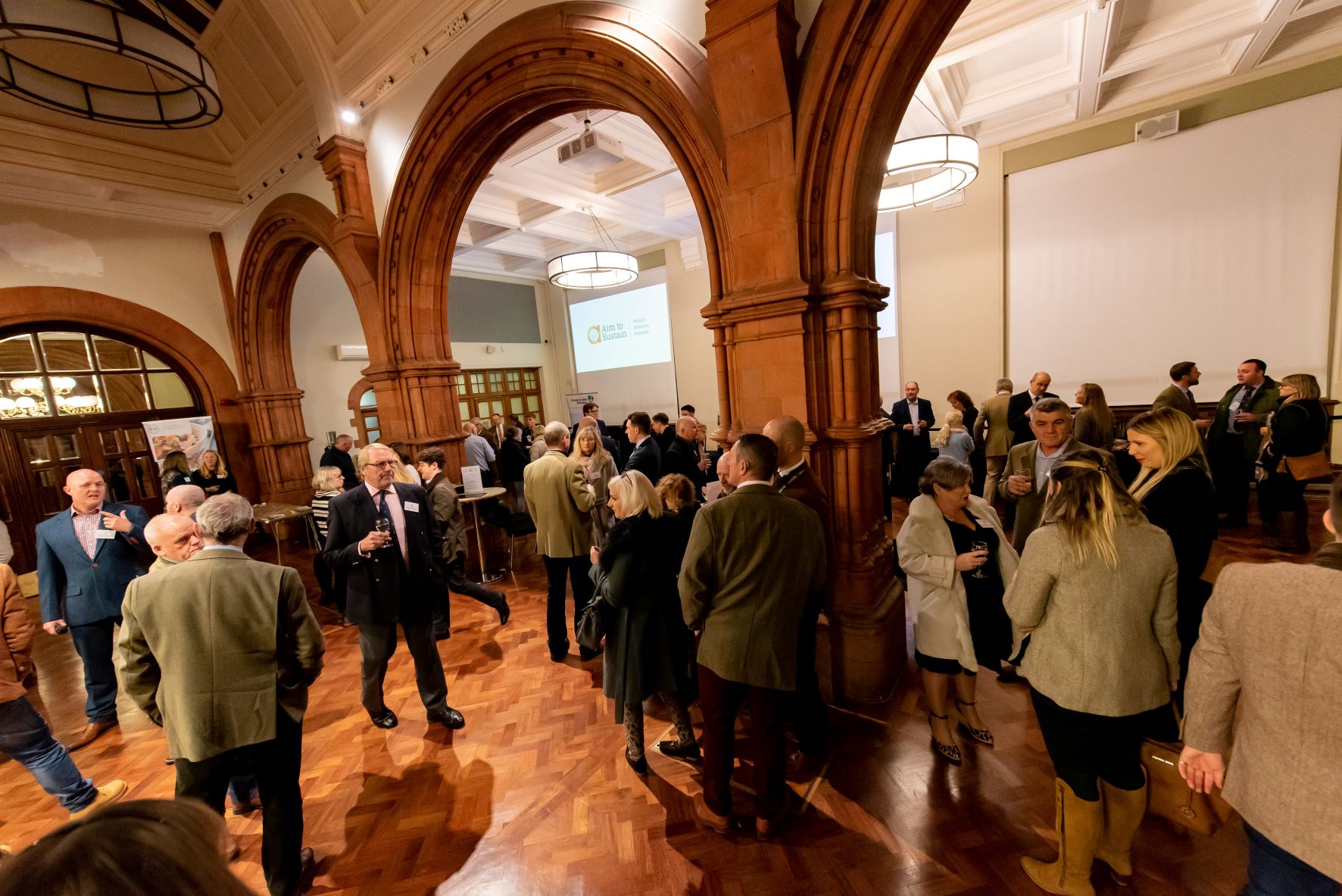 In November the GFA joined forces with our Aim to Sustain (Wales) partners to introduce game to a receptive audience of Welsh members of the Senedd (MS). Over 20% of the MS' attended an evening which celebrated game as healthy and exciting food and promoted the shooting sector behind it. The event took place in Cardiff Bay adjacent to the Senedd Building.
In November the GFA joined forces with our Aim to Sustain (Wales) partners to introduce game to a receptive audience of Welsh members of the Senedd (MS). Over 20% of the MS' attended an evening which celebrated game as healthy and exciting food and promoted the shooting sector behind it. The event took place in Cardiff Bay adjacent to the Senedd Building.
Michelin starred Chef Hywel Griffith entertained the audience with a live cookery demonstration whilst guests were served canapes, wraps and casserole with game as the featured ingredient.
read more »Samuel Kurtz (Conservative MS for Carmarthen West and South Pembrokeshire) said. "Shooting and conservation go hand in glove in protecting our environment and vulnerable species and supporting the restoration of habitats and ecosystems. With the Welsh Goverment not necessarily recognising the wider value of these activities, it is our job to bang the drum and ensure that our rural communities are getting the praise and applause they deserve. That's why events such as this provide the perfect opportunity to showcase the industry's vital contribution to nature and the environment. The whole team did a suberb job at demonstrating the versatility of game produce and showed the complete journey game meat makes to our dinner plates."

GFA President Paul Jeavons and PR and Political Advisor Dominic Boulton both attended the very popular event. Paul Jeavons said. " Although we only have a few members in Wales it is vital that the GFA plays its part in defending and promoting game shooting in Wales, particularly in light of the Welsh Government's attitude to our sector."
Spike Butcher who addressed the room (pictured below with Rachel Evans of the Countryside Allliance - the driving force behind the event) said. "Bringing fantastic Welsh game to the Senedd estate has literally given us food for thought. The importance of shooting to Wales in terms of economic, environmental and social benefits were delivered through food cooked to an exceptional standard by all involved. There was a significant atmosphere created by a plethera of people who depend on shooting, from veterinary surgeone to caterers, conservationists, and those who partake in shooting. It was a great showcase for shooting in Wales."
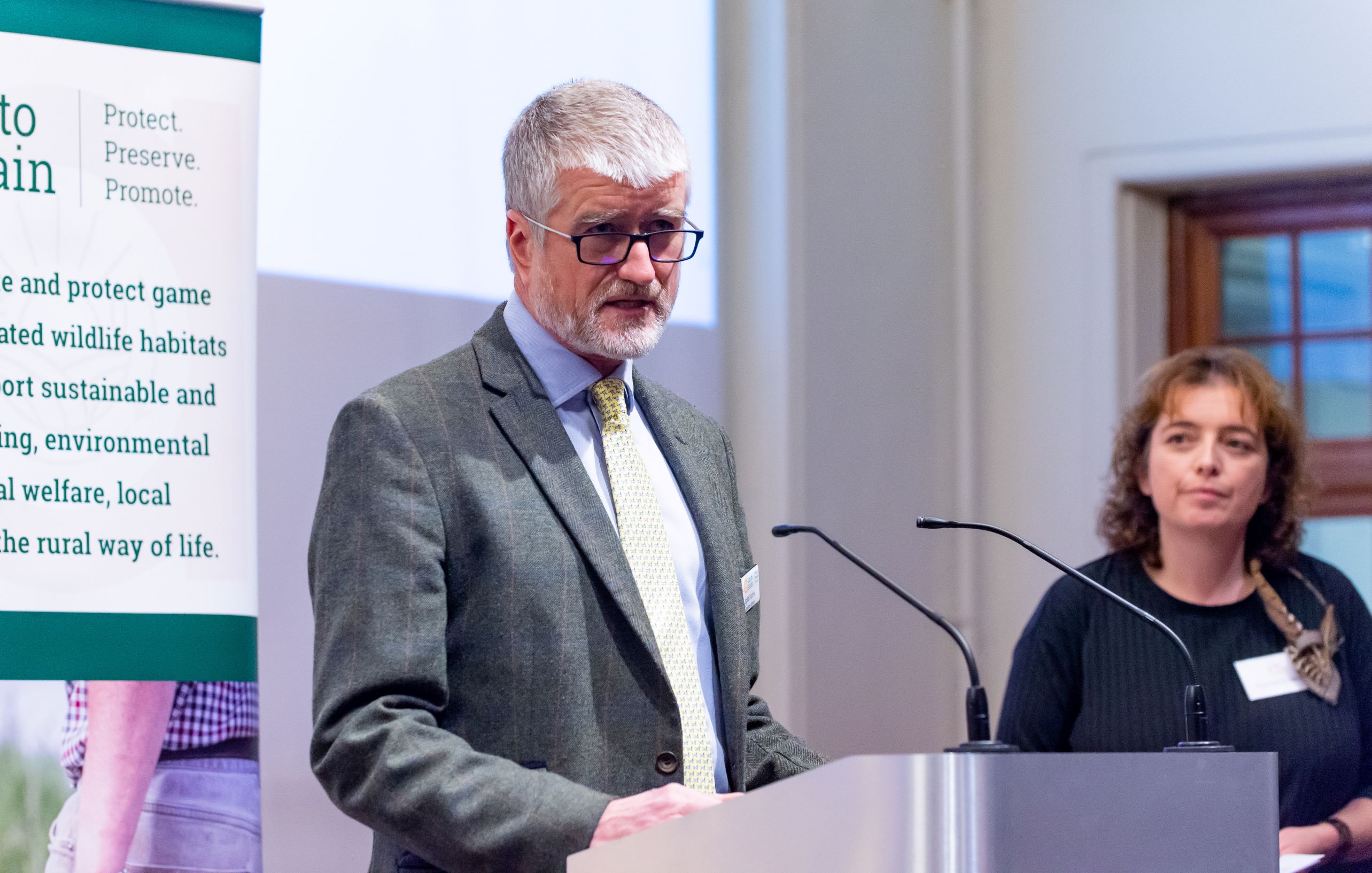
Defra publishes Risk Assessment on game bird releasing (16th December 2022)
 On the 15th December 2022 Defra published their Risk Assessment on game bird releasing that attempts to assess the risk of pheasants passing Avian Influenza (AI) to wild bird populations. Having considered the detail of this assessment the GFA feels the that the headlines presented by the document do not reflect the content of the paper, or the actual impact of pheasant release on wild bird populations.
On the 15th December 2022 Defra published their Risk Assessment on game bird releasing that attempts to assess the risk of pheasants passing Avian Influenza (AI) to wild bird populations. Having considered the detail of this assessment the GFA feels the that the headlines presented by the document do not reflect the content of the paper, or the actual impact of pheasant release on wild bird populations.
The assessment is only concerned with the situation at the time it was written (August 2022) and therefore has little relevance to future policy decisions. Defra have confirmed that were they to consider further work in this area their methodology will need to be updated, as will the knowledge base of those undertaking such work.
read more »They have also given an undertaking that The GFA, along with other Aim to Sustain partners, will have much greater engagement in the process. Dominic Boulton of the GFA commented that “Whilst we welcome the opportunity to engage with DEFRA in further work around this issue, it is a shame that they did not engage with us more during the process of producing this Risk Assessment. Had they have done so the end result would have been far more relevant ”
GFA Chairman George Davis echoed this sentiment and added “Defra acknowledge that this assessment is based on assumptions made with a lack of reliable data and therefore inherent within the findings is a high degree of uncertainty. Looking back at what we know has happened over the last few months in the aftermath of the 2022 releasing season this becomes abundantly clear. Indeed, there is no evidence that one of the scenarios the Risk Assessment considers (game birds being infected with AI prior to release) even happened, so considering the risk it poses seems completely pointless.” Both George and Dominic joined Aim to Sustain colleagues this morning to meet the Defra team responsible for the report and highlight our concerns at the lack of prior engagement with the game sector.
GFA joins with Aim to Sustain Partners (3rd November 2022)
 GFA joins with Aim to Sustain Partners to write to Therese Coffey, the new Secretary of State for the Environment.
GFA joins with Aim to Sustain Partners to write to Therese Coffey, the new Secretary of State for the Environment.
Read a copy here.
Aim To Sustain Avian influenza Q & A (18th October 2022)
![]() The following has been put together by the partner organisations of Aim to Sustain for the benefit of the whole shooting community, especially the members of the organisations that make up Aim to Sustain.
The following has been put together by the partner organisations of Aim to Sustain for the benefit of the whole shooting community, especially the members of the organisations that make up Aim to Sustain.
Click here to access your copy.
read more »GFA Interviewed by ITN National News (2nd September 2022)
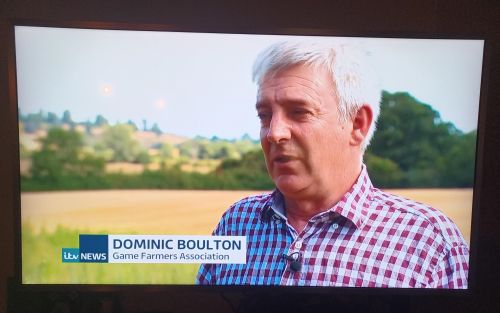 Dominic Boulton (the GFA's PR and Political Advisor) was interviewed by ITN News this week on the subject of whether the release of game birds into the UK countryside risks spreading avian flu?
Dominic Boulton (the GFA's PR and Political Advisor) was interviewed by ITN News this week on the subject of whether the release of game birds into the UK countryside risks spreading avian flu?
Click here to watch it.
RSPB calls for a moratorium on gamebird releasing (12th August 2022)
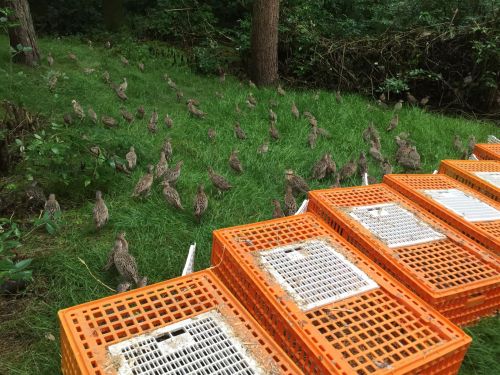 In the latest of its’ cynical attempts to disrupt shooting the RSPB has this week, publicly called for a moratorium on gamebird releasing to reduce the risk of spreading Avian Influenza. Not only do they admit there is no scientific evidence to support their position, the RSPB has also conveniently overlooked all of the facts that don’t fit with it’s narrative.
In the latest of its’ cynical attempts to disrupt shooting the RSPB has this week, publicly called for a moratorium on gamebird releasing to reduce the risk of spreading Avian Influenza. Not only do they admit there is no scientific evidence to support their position, the RSPB has also conveniently overlooked all of the facts that don’t fit with it’s narrative.
Defra and the game management sector recognise the significant threat posed by highly pathogenic avian influenza (HPAI) to the UK’s precious wild bird populations. There is already a ban on releasing gamebirds in all control zones, and businesses that wish to release them outside of zones are required to maintain stringent biosecurity standards and report any signs of avian influenza to minimise the spread of disease. This is standard good practice on game shoots.
read more »Dr Roger Draycott, Director of Advisory and Gamebird Policy at GWCT commented: “The RSPB’s position is not based on scientific evidence and if enacted would unquestionably lead to a reduction in activities including habitat provision and management, supplementary feeding and targeted predation management, all of which have been scientifically proven to deliver significant biodiversity benefits to the British countryside. These would be lost if there was a moratorium on gamebird releasing and management as proposed by RSPB.”
George Davis, Chairman of the GFA said “At times like these we need to see organisations coming together to sustain our wildlife and so much more in our countryside. RSPBs recent prejudiced remarks from the side-lines are designed to score political points whilst it's the farmers and gamekeepers that toil in these challenging times and extreme weather, looking after cover crops, hedging plants and maintaining watering stations to name just a few of the jobs that sustain our bird life.
Their recent statement seems to be more geared to appeasing their supporters, and political grandstanding without considering the consequences of loss of habitat or the thousands of man hours that are invested in managing our countryside and conservation projects. Judging by their actions, it is hard to avoid the conclusion that the RSPB is more interested in disrupting shooting than protecting birds or encouraging conservation, habitat management and biodiversity gain.
Please don't forget your grassroots RSPB, Sir Peter Scott was a shooting man himself, and like him many of us are passionate about wildlife conservation. Our national bird life is supported by those that live and work in the countryside, compromising our livelihood will adversely affect huge swathes of the countryside and would lead directly to the loss of hundreds of millions spent annually on habitat management and biodiversity - how damaging would that be?”
Baroness visits Chairman's game farm (26th July 2022)
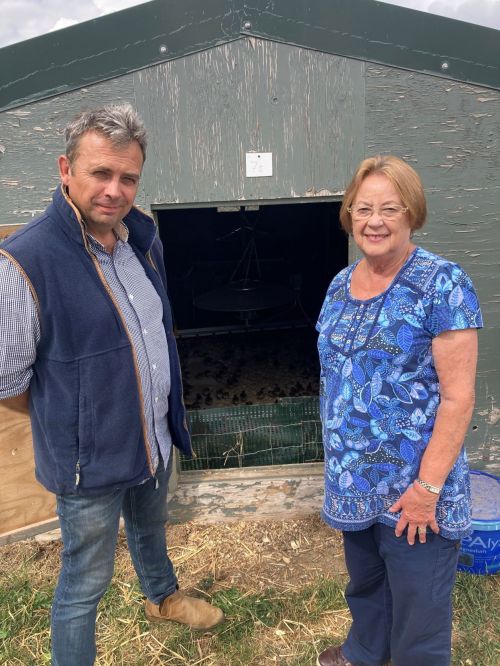 In addition to engaging with Baroness Jones, the GFA also approached Baroness Bakewell following her participation in the Lord's debate about Lord Randall's bill. Baroness Bakewell is a Liberal Democrate Peer with a rural background and is broadly supportive of fieldsports.
In addition to engaging with Baroness Jones, the GFA also approached Baroness Bakewell following her participation in the Lord's debate about Lord Randall's bill. Baroness Bakewell is a Liberal Democrate Peer with a rural background and is broadly supportive of fieldsports.
Diary pressures prevented her from accepting her invitation to visit a site with Raised Laying Units before the end of the breeding season, but during an introductory Zoom meeting she expressed an interest in learning more about the whole rearing process. On 26 July we welcomed her to The Game Farm at Great Missenden, which is owned and operated by GFA Chairman George Davis.
read more »Baroness Bakewell said she found the visit both interesting and informative and she plans to follow this with a spring visit to another site to look at Raised Laying Units and has expressed an interest in attending a shoot day this season to find out more about shooting.
GFA presence at Royal Welsh Show (19th July 2022)
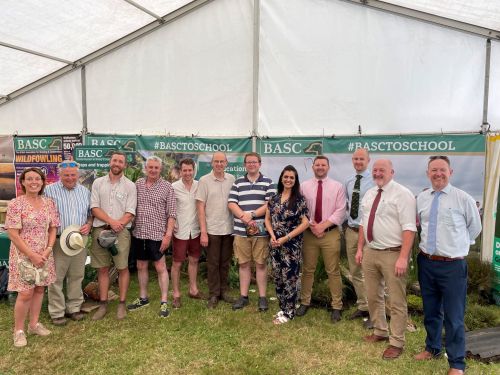 As a result of our partnership working with other organisations, principally through Aim to Sustain, Dominic Boulton attended the Royal Welsh Show where he represented the GFA at a cross party shooting and conservation group meeting of members of the Welsh Senedd.
As a result of our partnership working with other organisations, principally through Aim to Sustain, Dominic Boulton attended the Royal Welsh Show where he represented the GFA at a cross party shooting and conservation group meeting of members of the Welsh Senedd.
Pictured from left to right are: Ann and Gwyn Evans Bettws Hall, Matthew Goodall GWCT, Dominic Boulton GFA, Sam Rowlands MS North Wales (Conservative Shadow Minister for Local Government), LLyr Gruffydd MS North Wales (Plaid Cymru), Joel James MS South Wales Central (Conservative and member of BASC), Natasha Asghar MS South East Wales (Conservative), Samuel Kurtz MS Camarthen West and South Pembrokeshire (Conservative), David Boden BASC, Peter Fox MS Monmouth (Conservative) and Russell George MS Montgomeryshire (Conservative).
Later the same day, Dominic also represented the GFA at the Welsh Aim to Sustain Committee to discuss their recent call for evidence on game bird releasing.
GFA visit House of Lords (14th July 2022)
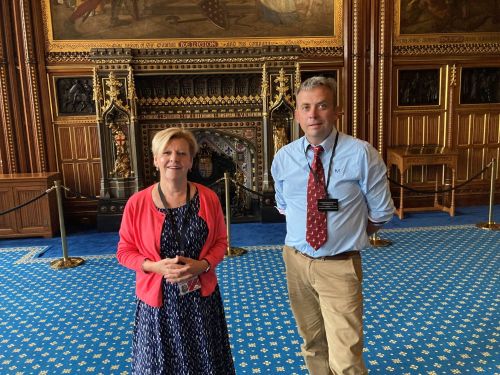 In the aftermath of the reading of Lord Randall's Bill on Raised Laying Units in the House of Lords earlier this year, the GFA reached out to several key participants in the debate to engage with them directly and offer them the opportunity to visit a game farm.
In the aftermath of the reading of Lord Randall's Bill on Raised Laying Units in the House of Lords earlier this year, the GFA reached out to several key participants in the debate to engage with them directly and offer them the opportunity to visit a game farm.
One of these was Baroness Jones (Labour Shadow Secretary for the Environment), who was unable to fit a site visit into her schedule prior to the end of the laying season, but instead invited us to meet with her at the House of Lords in Westminster.
read more »In mid July, George Davis (Chairman) and Dominic Boulton (PR and Political Advisor), made the trip to London and had a very productive meeting with Baroness Jones. Although no fan of shooting, Baroness Jones approached the meeting with an open mind and was appreciative of the bigger picture that surrounds the shooting debate and by the end of the meeting, accepted that the wider benefits of shooting countered many of the arguments levied against the sport. She agreed that whilst she could not condone shooting game, she had no desire to prevent others from doing so. Baroness Jones has also accepted our invitation to visit a game farm next spring to further discuss the matter of Raised Laying Units.
GFA receives letter from Lord Benyon (12th July 2022)
 The GFA recently received a letter from Lord Benyon (click on link below to read in full), recognising the contribution that we make on behalf of the shooting sector and the part we have played in trying to resolve the issues that Avian Influenza has created, particularly in respect of French imports.
The GFA recently received a letter from Lord Benyon (click on link below to read in full), recognising the contribution that we make on behalf of the shooting sector and the part we have played in trying to resolve the issues that Avian Influenza has created, particularly in respect of French imports.
Through the participation of Dominic Boulton at DEFRA’s National Avian Disease Core Group the GFA has done all in its power to find a solution to these problems and keep its members updated on the situation as it developed. Although a solution could not be implemented in time to save the 2022 season, as you can see from Lord Benyons’ letter, a mechanism does now exist that could potentially help, should we be faced with similar problems in future.
The GFA would like to thank Lord Benyon and all his colleagues at DEFRA and APHA for the support they have given the shooting sector throughout these troubling times, and we have replied to his letter.
GFA launches 2022 Joint Communication on Antibiotics (29th April 2022)
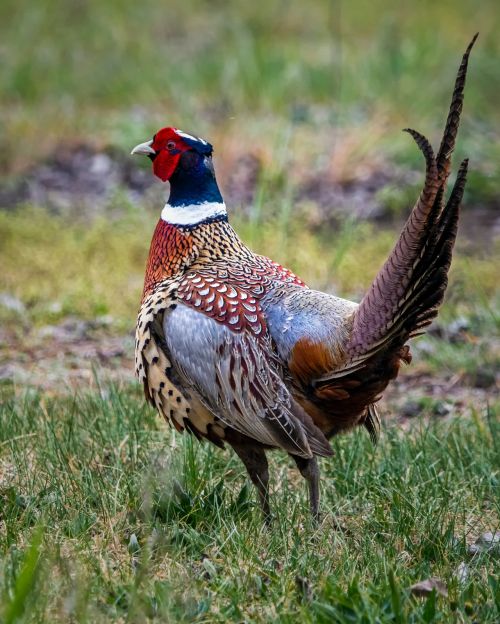 As we continue through the second phase of optimising antibiotic use in Livestock sectors, RUMA’s Targets Taskforce 2 (TTF2), the game sector, along with some others, needs to maintain focus on further reductions. If we are to meet the target that we set ourselves for the TTF2 period, which ends in 2024, we will need to make significant further reductions over the next three years.
As we continue through the second phase of optimising antibiotic use in Livestock sectors, RUMA’s Targets Taskforce 2 (TTF2), the game sector, along with some others, needs to maintain focus on further reductions. If we are to meet the target that we set ourselves for the TTF2 period, which ends in 2024, we will need to make significant further reductions over the next three years.
We are delighted to share with you some summary figures from the 2021 collection, together with some reinforcement of the rules and regulations, as well as some exciting new initiatives to help take our sector forward. For more information, please click on the link below.
Gamebird Joint Communication 2022
As we look to make further sustainable reductions in the prescription of antibiotics, there needs to be greater focus on improving systems, raising welfare standards and research so, that we create a sector that is less prone to disease challenges and is consequently less dependent on medication.
Bird Flu Threatens Egg and Chick Imports (14th March 2022)
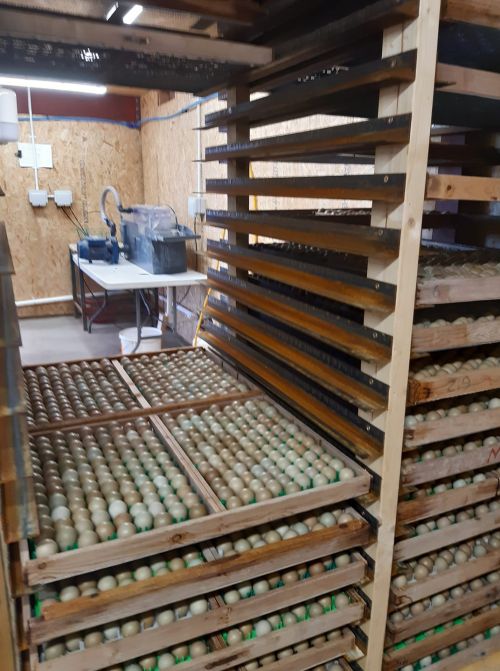 Recent Avian Influenza (AI) outbreaks in France are now threatening the export of French eggs and chicks.
Recent Avian Influenza (AI) outbreaks in France are now threatening the export of French eggs and chicks.
There are now a significant number of Infected Premises (IP’s) (where AI has been confirmed in captive birds) in the region of France where most gamebird breeding sites are located, namely the Vendee and Loire Atlantique regions. These two regions contain a significant proportion of the gamebird production sites that export eggs and chicks to the UK.
The result of this is that no eggs, chicks etc can leave these disease control zones without a licence. The GFA has been heavily involved in trying to find some resolution to these problems, but the situation is constantly changing and despite our best efforts there is currently no permanent solution in sight.
read more »The GFA is currently engaged with officials at the highest level in DEFRA and APHA through our representation on the Governments Nation Avian Disease Core Group, and has been involved with briefing the Secretary of State for Agriculture, George Eustice, as well as liaising with our colleagues in France to help facilitate more communication between officials here and across the Channel.
Further updates will follow as soon as there are any developments. In the meantime the GFA recommends all producers liaise closely with their suppliers to understand how this situation may affect them.
Scottish Government Statement on Catching-Up Gamebirds (19th January 2022)
 On January 14th 2022 the Scottish Government issued the following statement in relation to catching-up in Scotland. Although Scotland has only had 5 confirmed cases of AI in captive birds, there have been extensive findings in wild birds across Scotland with over 80 cases confirmed in 14 different species across Scotland, in over 40 locations from Aberdeenshire to Skye to the Borders.
On January 14th 2022 the Scottish Government issued the following statement in relation to catching-up in Scotland. Although Scotland has only had 5 confirmed cases of AI in captive birds, there have been extensive findings in wild birds across Scotland with over 80 cases confirmed in 14 different species across Scotland, in over 40 locations from Aberdeenshire to Skye to the Borders.
Please note that the 28th February deadline for catching-up referred to in the statement is only applicable in Scotland, and that anywhere else in the UK catching-up is only legal until the end of the shooting season.
read more »As you will be aware, due to an increased risk of incursion of avian influenza (bird flu) for wild birds, gamebirds, poultry and other captive birds within the UK, an Avian Influenza Prevention Zone (AIPZ) was declared by Scottish Ministers, covering the whole of Scotland, on 03 November 2021. Similar legislation was enacted across all UK administrations.
Subsequently, measures that made it a legal requirement for all poultry and captive birds (with the exception of game birds kept for restocking) to be housed or otherwise kept separate from wild birds, and for all bird keepers to follow strict biosecurity measures in order to contain and eradicate the disease, were implemented on 29 November 2021.
Following feedback from stakeholders and government colleagues, and in light of recent outbreaks of highly pathogenic avian influenza within the UK, we recognised a need to issue the following important outbreak-specific advice to all involved with gamebirds in Scotland.
Biosecurity
Biosecurity means simple procedures or steps you can take to prevent disease. The risk of bird flu in the UK from wild birds never disappears completely and so good biosecurity should be incorporated into daily practice, but during an outbreak period it is vital to protect your birds. An outbreak of bird flu at any size game or poultry establishment can have a profound impact on the commercial game and poultry sector through both the introduction of movement restrictions and temporary loss of exports with other countries.
This biosecurity guidance includes details of measures that should be taken in the current Avian Influenza Prevention Zone and provides specific advice for game bird keepers. Complete the biosecurity self-assessment checklist to ensure you are complying with the mandatory biosecurity requirements.
Legal Requirement
The legal requirement to house all poultry or captive birds in the UK includes caught-up gamebirds. The aim of this requirement is to segregate poultry and captive birds, such as caught up gamebirds, from wild birds as much as is possible to reduce the risk of infection. The exception to this requirement are game birds kept for restocking supplies. Although it is important to note that these birds must be supplied with feed and water either indoors or under a shelter which prevents contact by wild birds with the feed and water supplied.
Bird Gatherings
A further biosecurity measure integral to the legal restrictions applied, and key to reducing the risk of onward spread, is the amendment of the General Licence permitting bird gatherings (to prohibit gatherings involving kept galliformes (chickens, turkeys, pheasants, partridges, quails and other land fowl) and kept anseriformes, (ducks, geese, swans and other water fowl). It is important to stress that these bird gathering events include the catching-up of wild game birds. There are, however, exceptions to this and the following are not considered to be gatherings and do not, therefore, need to be licensed:
- catching-up of wild game birds (where they have come from multiple locations but are then moved to a single location afterwards, and remain there for breeding or other purposes)
- birds which are brought together from different locations, but where no birds move off the premises within 13 days of the last bird arriving on the premises;
It should be noted, however, that there is some risk that birds gathered from the wild could be infected with avian influenza, and by gathering them up and bringing them back to a farm/shoot/estate, this could infect the birds that are already there. Caught up pheasants are defined as poultry. Therefore, if disease is confirmed, this would result in a new infected premises. It is on this basis that all catching up activities are not recommended whilst the AIPZ measures are still in effect.
This recommendation holds even greater weight for premises that fall within geographical areas deemed at particular high risk to avian influenza (HRAs). Check if your premises falls within one of these areas by using our interactive map (please note the ‘layers’ functionality button top right on this interactive screen to add HRAs to the map).
Register Your Birds
There is a legal requirement for all poultry keepers with 50 or more birds to register their premises on the Great Britain Poultry Register – this includes game keepers. The voluntary registration of premises with fewer than 50 birds is highly encouraged - particularly if you are in, or close to, a higher risk area.
General Advice
It should be noted that this is general advice for those whose activities do not fall within Protection and Surveillance Zones associated with an outbreak premises, within which specific legal regulations apply.
It is also worth noting that catching up gamebirds is only legal until 28th February in Scotland.
Avian influenza is a notifiable disease by law. If you find a single dead wild waterfowl (swans, geese or ducks), a single dead bird of prey, or five or more dead wild birds of any other species (including gulls) at the same place at the same time, you should report them to Defra’s GB-wide telephone helpline: 03459 33 55 77 (please select option 7). It is advisable that you do not touch these birds.
Know the signs of bird flu in kept birds, which include loss of appetite, swollen heads, respiratory problems and multiple unexpected deaths. If you suspect any type of avian influenza in poultry or captive birds you must report it immediately by contacting your local APHA office. Failure to do so is an offence.
Bird flu and its consequences can certainly impact game management and shooting, but it is also true that game managers and shooters are in a good position to detect and report outbreaks. Please be vigilant and report any concerns.
Scottish Government have joined with organisations involved in gamebird management to issue revised guidance on bird flu and the way it can affect the activities of gamebird rearers.
Queries specific to gamebirds and avian influenza can also be addressed to:
The Game Farmers Association
PO Box 3629
Wokingham
RG40 9LG
Tel: 01189 797255
Email: dominic@gfa.org.uk
Scottish Government guidance on avian influenza can be found at:
Aim to Sustain hails third Wild Justice defeat as “vindication for uplands managers†(18th January 2022)
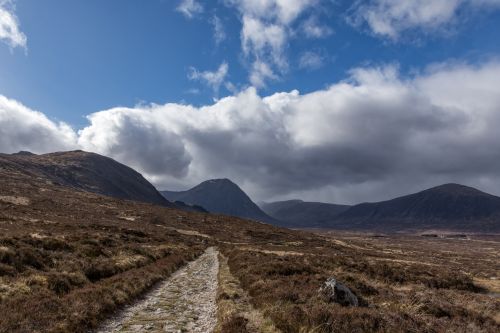 AIM TO SUSTAIN partner organisations have said another legal defeat for Wild Justice is vindication of those who manage Britain’s uplands.
AIM TO SUSTAIN partner organisations have said another legal defeat for Wild Justice is vindication of those who manage Britain’s uplands.
Wild Justice again attempted to launch an appeal after the High Court last month refused their application for a judicial review of the Heather Burning Regulations for a second time.
But the Rt Hon Lord Justice Males in the Court of Appeal today dismissed this latest legal challenge by the group run by Chris Packham, saying such an appeal “would have no real prospect of success”.
read more »A spokesperson for Aim to Sustain partner organisations said: “This result is further vindication of the legitimate, ethical and sustainable land management that underpins these iconic areas of the British uplands.
“Packham and Wild Justice have now suffered this embarrassing, third defeat on this issue. Four Aim to Sustain organisations fought all the way on this issue and they will continue to fight any further actions by Wild Justice that threaten sustainable management of our countryside which provides important environmental, societal and conservation benefits.”
Four organisations within Aim to Sustain worked shoulder to shoulder with Defra to defend the challenges brought by Wild Justice - the Moorland Association (MA), British Association for Shooting and Conservation (BASC), Countryside Alliance (CA), and National Gamekeepers’ Organisation (NGO).
“We firmly believe that prescribed burning is an essential tool for those managing our uplands and we want to ensure these land managers continue to have access to the right tools at the right time,” the spokesperson added.
The organisations have now also officially received £1,100 legal costs awarded to them by the court when the original Wild Justice challenge was refused last year. The money has been donated to the Gamekeepers’ Welfare Trust.
New General Licences - A Step in the Right Direction (14th January 2022)
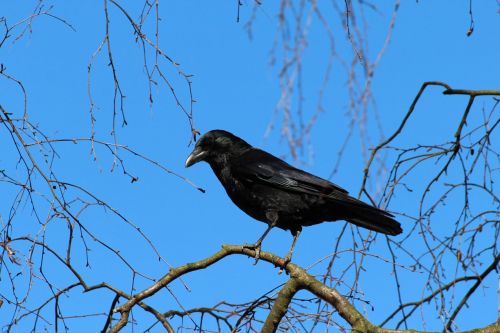 After a meeting in early December with Aim to Sustain partner organisations (including the GFA) Defra has now issued the 2022 versions of GL40, GL41 & GL42 – the General Licences that allow the lethal control of pest birds.
After a meeting in early December with Aim to Sustain partner organisations (including the GFA) Defra has now issued the 2022 versions of GL40, GL41 & GL42 – the General Licences that allow the lethal control of pest birds.
Several aspects of the draft licences were changed significantly as a result of this meeting and the subsequent follow up. Although far from perfect, the new licences (which are valid for 2 years instead of the usual 1) are a significant improvement to the versions we were initially asked to comment on.
read more »Most notably, the English general licences now cover European Protected Sites (such as Special Protection Areas and Special Areas of Conservation) albeit with some additional conditions relating to some of these sites. This will make controlling ‘pest birds’ over these sites easier and quicker as there will no longer be a need to apply for an individual licence.
However, members should be aware of changes to GL40, ‘the conservation licence’, which as of 2021 includes a controversial and unsupportable change that control under this licence can now only be carried out to conserve bird species which are endangered i.e. red or amber listed. Although not directly relevant to the rearing field, this could have wider implications for Game Farmers who rely on GL40 for conservation purposes away from the rearing field.
Any activity not covered by a general licence will require an individual licence from Natural England. Last year there were significant issues and delays with processing individual licence applications. NE has launched a pre-screening service for anyone considering applying for such a licence to improve the process. The service should take less than ten minutes to complete, and NE will provide a quick response advising of the likelihood of a licence being issued and what evidence would be required to be successful. This is a welcome attempt to improve the service offered by NE and with our partner organisations in Aim to Sustain we will be monitoring the success of the new service.
Crucially for Game Farmers and Game Keepers, point 7 of the legal definitions of GL42 on the last page of the licence, makes it clear that the term “livestock” includes game birds in the context of game farming.
Below are links to the current General Licences that are valid until 31 December 2023:
Valid from 1 January 2022 – GL40: general licence to kill or take certain species of wild birds to conserve wild birds, flora or fauna of conservation concern
Valid from 1 January 2022 – GL41: General Licence to kill or take certain species of wild birds to preserve public health or public safety
Valid from 1 January 2022 – GL42: General Licence to kill or take certain species of wild birds to prevent serious damage
Valid until 31 December 2022:
Valid from 1 January 2022 – GL33: trapping wild birds: standard licence conditions
Bird Flu Outbreak Continues to Worsen (10th January 2022)
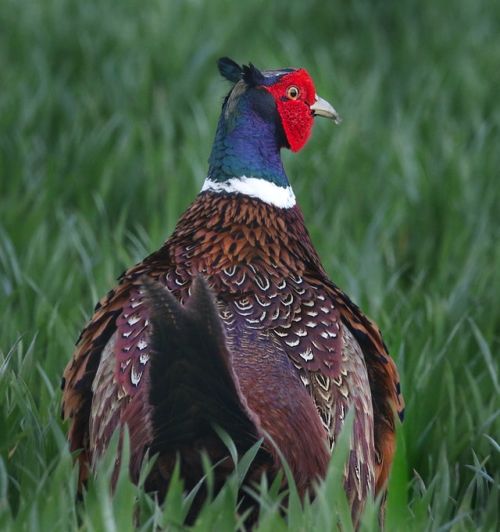 With the number of confirmed cases in captive birds having reached 78, the current outbreak now involves three times as many cases as last winter (26 cases), which itself was the worst outbreak at that time.
With the number of confirmed cases in captive birds having reached 78, the current outbreak now involves three times as many cases as last winter (26 cases), which itself was the worst outbreak at that time.
The increased number of Disease Control Zones will inevitably make catching up operations and the movement of laying birds more complicated as birds cannot be moved in or out of such zones without a licence from APHA, which is unlikely to be granted for such a purpose.
The location of Disease Control Zones can be checked at Animal and Plant Health Agency (APHA) interactive map, and in Northern Ireland on DAERA’s interactive map. The map is constantly updated as new zones are declared and old ones lifted.
In addition to Disease Control Zones an Avian Influenza Prevention Zone (AIPZ) including housing measures and restrictions on bird gatherings is in force across the UK. See GOV.UK for further information.
read more »Last week the first case of Bird Flu was confirmed in a human, although this was as a result of prolonged close contact with infected birds and was not related to shooting or the handling of shot game. It does however highlight the need for vigilance among bird keepers.
Professor Isabel Oliver, Chief Scientific Officer at the UK Health Security Agency, said: “While the risk of avian flu to the general public is very low, we know that some strains do have the potential to spread to humans and that’s why we have robust systems in place to detect these early and take action. Currently there is no evidence that this strain detected in the UK can spread from person to person, but we know that viruses evolve all the time, and we continue to monitor the situation closely. We have followed up all of this individual’s contacts and have not identified any onward spread. It remains critical that people do not touch sick or dead birds, and that they contact DEFRA.”
UK’s Chief Veterinary Officer Christine Middlemiss said: “While avian influenza is highly contagious in birds, this is a very rare event and is very specific to the circumstances on this premises. We took swift action to limit the spread of the disease at the site in question, all infected birds have been humanely culled, and cleansing and disinfection of the premises is underway. This is a reminder that stringent cleanliness when keeping animals is important. We are seeing a growing number of cases in birds on both commercial farms and in backyard flocks across the country. Implementing scrupulous biosecurity measures will help keep your birds safe.”
As the start of the laying season looms nearer, biosecurity arrangements and quarantine / isolation protocols, where relevant, have never been more important. For further advice click on biosecurity.
Catching up gamebirds in England and Wales is legal until the end of the shooting season and until 28th February in Scotland.
Aim To Sustain gathers momentum (6th December 2021)
 After receiving strong support from the shooting community, through a ten-week consultation, the Aim to Sustain partnership has pushed on at pace.
After receiving strong support from the shooting community, through a ten-week consultation, the Aim to Sustain partnership has pushed on at pace.
The first phase of work has been to coordinate and take strategic legal direction on an issue which has caused disruption across the countryside - UK Habitat Risk Assessments (HRA) here.
Recent tactical co-ordination has included responding positively to the RSPBs 2021 report on the illegal killing of birds of prey here and Wild Justice’s failure to secure a judicial review on “burning” in England, for a second time here.
This week the Chairman and Chief Executives of the partners will be meeting in person. They are collectively committed to ensuring the partnership’s priorities are delivered as swiftly as possible – the highest standards of self-regulation, the most persuasive and credible research, and the most effective political and public engagement for game shooting.
Bird Flu latest - 25 November 2021 (25th November 2021)
 DEFRA announces UK-wide housing measures to protect poultry and captive birds against avian flu. Click here for an update on the latest situation.
DEFRA announces UK-wide housing measures to protect poultry and captive birds against avian flu. Click here for an update on the latest situation.
Bird flu and Gamebirds: Revised Guidance Issued (12th November 2021)
 Government has joined with organisations involved in gamebird management to issue revised guidance on bird flu and the way it can affect the activities of gamebird rearers.
Government has joined with organisations involved in gamebird management to issue revised guidance on bird flu and the way it can affect the activities of gamebird rearers.
Published today by eight game shooting, research and game conservation bodies, the new guidance is endorsed by Defra, the Scottish, Welsh and Northern Ireland governments. Click here to access it.
Avian Influenza Strikes, National Protection Zone Announced. (5th November 2021)
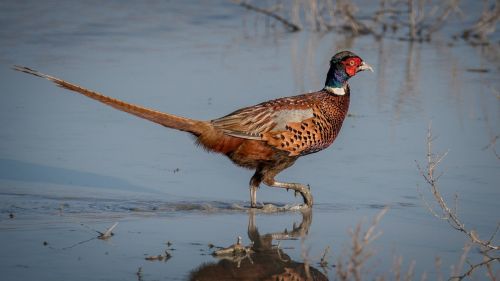 As of 5pm on 3/11/2021 the Government introduced a National Avian Influenza Protection Zone (AIPZ) which covers England, Scotland and Wales, in response to confirmed cases of High Path H5N1 in Worcestershire (England), Wrexham (Wales) and Angus (Scotland).
As of 5pm on 3/11/2021 the Government introduced a National Avian Influenza Protection Zone (AIPZ) which covers England, Scotland and Wales, in response to confirmed cases of High Path H5N1 in Worcestershire (England), Wrexham (Wales) and Angus (Scotland).
Members are requested to be vigilant and report any dead captive or wild birds to the DEFRA Rural Services Helpline on 0300 020 0301. In Wales contact 0300 303 8268, failure to do so is an offence.
read more »The AIPZ means all bird keepers in Great Britain (whether they have pet birds, commercial flocks or just a few birds in a backyard flock) are required by law to take a range of biosecurity precautions. These will apply to anyone with overwintered game birds on their premises.
Separate AIPZ declarations have been made in each Great Britain administration. Details of the measures that apply and further information on Avian influenza can be found by clicking here.
GFA raises its profile at Ragley Hall Game Fair (30th July 2021)
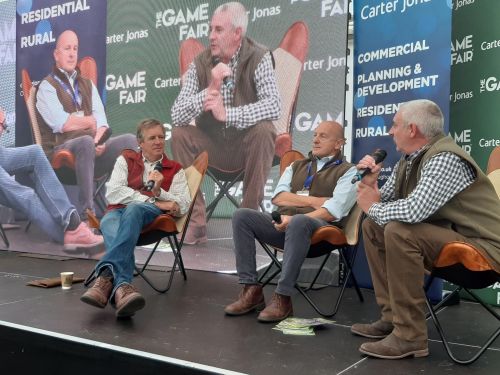 In addition to being part of the launch of Aim to Sustain at the Game Fair on Friday 23 July, the following day, Dominic Boulton (right) joined Roger Draycott (centre) from the Game and Wildlife Conservation Trust to talk to Charlie Jacoby (left) in the Game Fair Theatre about the new GFA veterinary pen scoring matrix.
In addition to being part of the launch of Aim to Sustain at the Game Fair on Friday 23 July, the following day, Dominic Boulton (right) joined Roger Draycott (centre) from the Game and Wildlife Conservation Trust to talk to Charlie Jacoby (left) in the Game Fair Theatre about the new GFA veterinary pen scoring matrix.
In the context of the ongoing campaign to reduce antibiotic use and to continue to raise standards across the sector, release pens and their role were a central part of the discussion. The pen scoring matrix was discussed in some detail as part of the wider conversation about improvements to release pens.
GFA proud to be part of Aim to Sustain (28th July 2021)
.jpg) Nine leading rural organisations, including the GFA, have launched a new partnership that will promote sustainable game shooting. Aim to Sustain launched at The Game Fair at Ragley Hall on Friday July 23 with all the partner organisations represented (see right) or click here for official press release.
Nine leading rural organisations, including the GFA, have launched a new partnership that will promote sustainable game shooting. Aim to Sustain launched at The Game Fair at Ragley Hall on Friday July 23 with all the partner organisations represented (see right) or click here for official press release.
The partner organisations will all retain their independence but combine expertise and resources to communicate to the public and decision-makers how sustainability is at the core of progressive game management. The partnership will also promote the highest standards of self-regulation and produce credible, robust, and focused research.
Aim To Sustain launched with a 10-week ‘Have Your Say’ consultation that will seek the opinions of the quarter of a million-strong combined membership of the individual organisations. For further details and social media channels, visit the Aim to Sustain website.
Pen Scoring Matrix - Updated 28 July 2021 (13th July 2021)
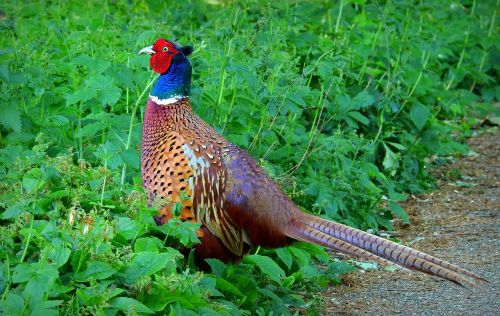 As promised in our May issue of Game Farming, here is the new pen scoring matrix. It was developed by some of our Trade Member Vets in conjunction with the GFA. We hope you find it useful.
As promised in our May issue of Game Farming, here is the new pen scoring matrix. It was developed by some of our Trade Member Vets in conjunction with the GFA. We hope you find it useful.
Gamebird Joint Communication 2021 (21st May 2021)
 As with all sectors, but especially food producing sectors, there continues to be a need to further reduce the levels of antibiotics (AB) prescribed. In the attached communication (click the link below) are some summary figures from the 2020 collection, along with some reinforcement of the rules and regulations, as well as some exciting new initiatives to help forward our sector and help maintain the sustainability for future generations to come.
As with all sectors, but especially food producing sectors, there continues to be a need to further reduce the levels of antibiotics (AB) prescribed. In the attached communication (click the link below) are some summary figures from the 2020 collection, along with some reinforcement of the rules and regulations, as well as some exciting new initiatives to help forward our sector and help maintain the sustainability for future generations to come.
As a sector 2020 has been one of the hardest years on record, but huge congratulations are due to those that persevered through Covid and also helped to continue reducing our overall AB use.
Bird Flu Update (15th May 2021)
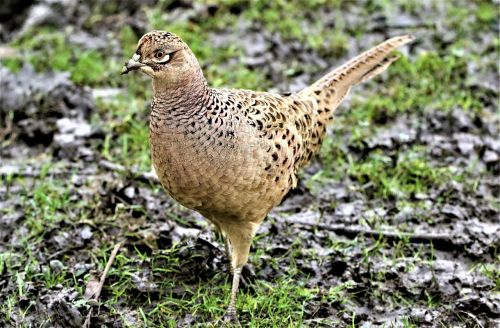 Defra has announced that the National Avian Influenza Control Zone and associated biosecurity requirements will be lifted as of midday on May 15.
Defra has announced that the National Avian Influenza Control Zone and associated biosecurity requirements will be lifted as of midday on May 15.
Whilst the AIPZ is being lifted, high standards of biosecurity should be retained by all bird keepers as infection may still be present in the environment and good biosecurity should be maintained for the health of your birds. (see www.gov.uk for details)
Additional biosecurity measures would still apply in disease control zones surrounding infected premises. Check if and where disease control zones are in force and where higher risk areas are located on the interactive map. (see www.gov.uk for details)
read more »This announcement follows a new risk assessment which was completed last week. There has been a significant reduction in the number of report cases across Europe and no new cases in the UK in the last few weeks.
The risk assessment concluded that: “The risk of avian influenza infection in wild birds remains low (rare but does occur). However, the risk of HPAI H5 exposure to poultry and captive birds across the whole GB has reduced from medium (occurs regularly) to low (rare but does occur) where biosecurity is sub-optimal and remains low (rare but does occur) where stringent biosecurity measures are applied.”
This will come as a relief in the game sector and should signal the beginning of the end of the outbreak. Work will now begin on analysing what can be learned and taken forward from it. There have recently been confirmed cases in wild pheasants for the first time, and as two of the confirmed cases in kept birds involved breeding pheasants, we will need to follow these reviews carefully to see if there is anything our sector can do to better protect itself in future.
Shooting group responds to NGDA statement (1st April 2021)
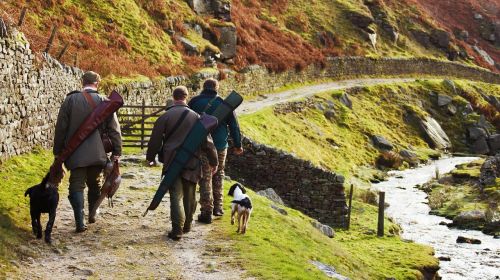 A group of leading shooting and rural organisations, including the GFA, has released the following statement in response to the National Game Dealers Association’s (NGDA) announcing it is committed to sourcing all feather and fur game from lead free supply chains from 1 July 2022:
A group of leading shooting and rural organisations, including the GFA, has released the following statement in response to the National Game Dealers Association’s (NGDA) announcing it is committed to sourcing all feather and fur game from lead free supply chains from 1 July 2022:
A spokesperson for BASC, the CA, the GFA and BGA said: “A strong game market and acceptance of game meat will mean a strong future for shooting. The continued use of lead shot has become a growing blocker for the game market. This was a key driver in the shooting organisation’s five-year voluntary transition away from lead shot for live quarry.
read more »“The NGDA represent an influential portion of the overall game dealers’ sector and their statement provides significant direction and leadership.”
“The shooting organisations continue to work towards a voluntary five-year transition but accept that changes within some areas of the sector may move quicker than in other areas.”
“The shooting organisations will continue to work with all stakeholders to support the transition through education, promotion and research and development in sustainable ammunition.”
New Vision for Game Farming (8th March 2021)
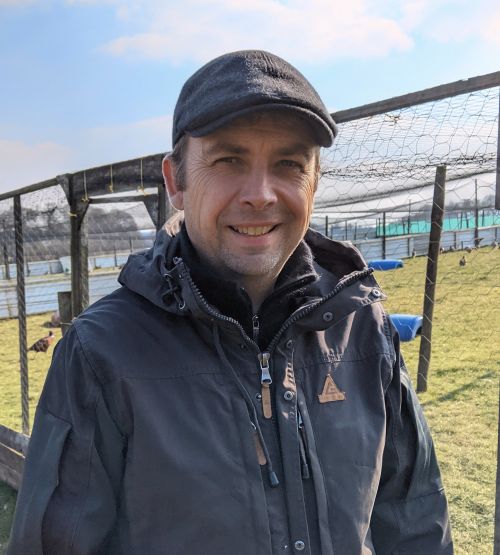 The Game Farmers’ Association (GFA) has a new Chairman. George Davis was elected at its recent AGM and takes over from Dominic Boulton, who has completed his three-year term.
The Game Farmers’ Association (GFA) has a new Chairman. George Davis was elected at its recent AGM and takes over from Dominic Boulton, who has completed his three-year term.
George comes from a family who have farmed gamebirds for generations, longer perhaps than any other in Britain, but George himself has new ideas and a clear vision for what he wants to achieve.
read more »“Game farmers faces many challenges and most are known to us. We need to come together and tackle them as one,” says George. “The GFA itself must be one step ahead, doing research and development to improve welfare and practicality in the production of quality gamebirds.
“Alongside this, our renowned political lobbying must continue and I am delighted that Dominic Boulton is going to be taking over much of Charles Nodder’s work now that he is retiring after 22 years as the GFA’s Political Adviser. We will also have assistance from the Game and Wildlife Conservation Trust, a collaboration which I warmly welcome because securing a legislative future for our sector is clearly fundamental.”
George hopes that his new vision for a fully up to date gamebird sector with high standards and high levels of compliance will encourage more game rearers to join the Association:
“Think how much is spent on feeding reared gamebirds birds and on keeping them warm. With an inexpensive membership subscription to the GFA, you can continue to ensure that the sector remains politically viable, whilst having access to the latest research and advice. I urge all gamebird rearers to join the GFA and share in our journey towards a bright future.”
Wild Justice 'would not have been successful', Judge says (30th November 2020)
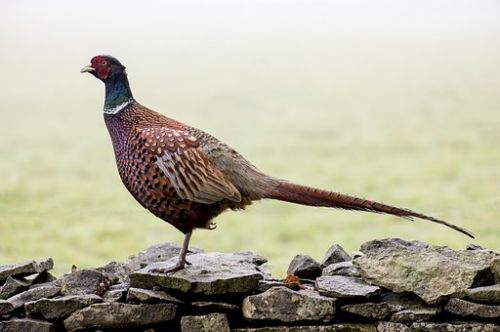 Shooting organisations have reacted positively to the publication of court papers that suggest Wild Justice’s Judicial Review on releasing gamebirds near to designated sites would not have been successful if heard.
Shooting organisations have reacted positively to the publication of court papers that suggest Wild Justice’s Judicial Review on releasing gamebirds near to designated sites would not have been successful if heard.
As interested parties, the British Association for Shooting and Conservation, Countryside Alliance, Game Farmers’ Association and National Gamekeepers Organisation worked together to ensure Wild Justice were unsuccessful in their request to have a stop notice placed on all gamebird releases up to 5km away from designated sites such as Special Protection Areas (SPAs) and Special Areas of Conservation (SACs).
read more »After dismissing Wild Justice’s subsequent attempt to claim £35,000 costs for the case it instigated, the judge in the matter was critical of the group’s behaviour in the latter stages of the legal process.
Justice Holgate criticised Wild Justice for their “unacceptable” failure to deal with the content of a witness statement submitted by Defra in August which discussed the findings of their 18-month evidence-gathering review of gamebird releasing and outlined subsequent steps that would be taken by Defra and Natural England (NE).
Justice Holgate also cast doubt on the validity of the case brought by Wild Justice, who were claimants (C) against Defra and the Secretary of State for the Environment, Food and Rural Affairs.
He added: “It does not appear to me from the material before me (which includes the results of the review) that C would have been successful on the issue.”
And in direct relation to Wild Justice’s application to receive costs, Justice Holgate said: “Plainly, it cannot be said that C has been wholly or even substantially successful in relation to its claim as originally pleaded.
“I am inclined to the view that it would not have been successful… …I am left with the firm impression that the application for costs did not grapple with the real issues from the outset and should not have been made.”
A spokesperson for the shooting organisations said: “The costs order by Justice Holgate has vindicated our hard work and the original decision by the organisations to fight Wild Justice to ensure that we could become involved in the legal hearings.
“As interested parties, we were able to submit witness statements and support Defra to ensure that shooting’s voice was heard.
"It was reassuring to see the Judge set out the shortcomings of Wild Justice's case in his rejection of their application for costs."
"As a group of organisations, we now move on to focus on the Government's proposed interim licensing scheme for gamebird release in and near to certain protected sites. We are determined that the legitimate game management interests of our members are safeguarded from threats, wherever they come from."
New Avian Influenza Prevention Zone Announced (12th November 2020)
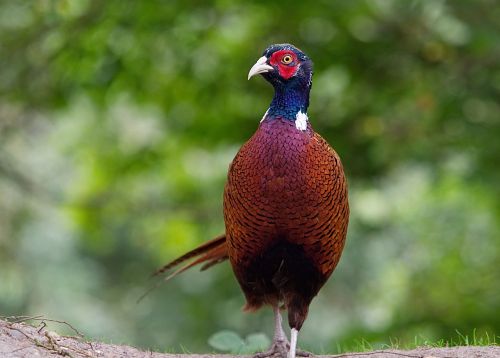 The Game Farmers' Association is advising its members that in response to the heightened risk of H5N8 highly pathogenic avian influenza, an Avian Influenza Prevention Zone (AIPZ) has today been declared in England, Scotland and Wales.
The Game Farmers' Association is advising its members that in response to the heightened risk of H5N8 highly pathogenic avian influenza, an Avian Influenza Prevention Zone (AIPZ) has today been declared in England, Scotland and Wales.
It introduces, by law, additional biosecurity measures for all poultry and captive bird keepers, to protect their birds from the risk of infection. The measures apply to all poultry keepers, including keepers of captive gamebirds, regardless of the numbers of birds kept.
read more »Further details, including the measures that apply in the AIPZ, can be found:
For England at GOV.​UK: https://www.gov.uk/government/news/avian-influenza-bird-flu-national-prevention-zone-declared
For Scotland at GOV.SCOT: https://www.gov.scot/news/avian-influenza-protection-measures-1/
and for Wales at GOV.WALES: https://gov.wales/all-wales-prevention-zone-declared-protect-poultry-avian-flu-0
We will keep the GFA website up to date if there are further major developments.
Defra propose gamebird releasing licence around protected sites (30th October 2020)
 Shooting organisations have responded with scepticism to Defra’s proposal to implement a licensing system for gamebird release in and around European protected sites, even after Wild Justice have indicated their intention to withdraw their judicial review.
Shooting organisations have responded with scepticism to Defra’s proposal to implement a licensing system for gamebird release in and around European protected sites, even after Wild Justice have indicated their intention to withdraw their judicial review.
With no prior consultation with BASC, Countryside Alliance, National Gamekeepers Organisation or the Game Farmers’ Association - who were all interested parties in the case - Defra has announced its intention to introduce an interim licensing system. The system will encompass the release of pheasant and red-legged partridge in and within 500 metres of Special Protection Areas (SPAs) and Special Areas of Conservation (SACs). Wild Justice had originally demanded a 5 km buffer zone.
read more »Defra has not yet provided details of their proposal although a consultation on the licensing conditions is expected imminently.
The four shooting organisations believe a licensing system is not justified by the scientific evidence, even on an interim basis, that it is a misuse of the precautionary principle and may be unlawful. They are also concerned that it is open to further attack from anti-shooting organisations. They have demanded the following:
- The shooting organisations must be fully involved with the consultation.
- Defra, rather than Natural England, should implement any new licence.
- The legislation for any interim licensing system should have the termination date clearly specified.
- The conditions on any licence should be the GWCT’s rules for releasing, which are already the basis of self-regulation in game shooting.
- Any licensing system must be in place by 1 February 2021 to allow shoots to plan for the season. If this is not possible the system should be delayed until 2022.
A spokesperson for the four organisations said: “We are supportive and fully committed to self-regulation and the principles of gamebird management in the interest of sustainable shooting. Defra’s proposed red tape under the precautionary principle will do little but threaten rural jobs, conservation efforts and a host of social benefits that shooting provides.
“Natural England’s wildlife licensing system has been proven unsuccessful as a light touch regulatory power and we remain unconvinced that Defra’s proposal for European designated sites will be fit for purpose.
“The proposal is better than Wild Justice’s time wasting demands that all releasing should be made illegal within 5km of designated sites but it is not justified by the scientific evidence, which is that the negative effects of gamebird releasing are highly localised and need to be weighed against the strong evidence of landscape scale benefits from the woodland management associated with shooting. If Defra is to secure cooperation from the shooting community, it must do better. At the moment, there is a great deal of scepticism that a unknown licensing system run by an underfunded public body can fix something that is not known to be ecologically damaging.”
The All-Party Parliamentary Group for Shooting and Conservation, chaired by Sir Geoffrey Clifton-Brown MP, has already held a meeting with the Secretary of State for Defra, George Eustice MP, where they expressed their concerns. In a follow up letter, the MPs called on Defra to work closely with the shooting organisations.
Sir Geoffrey Clifton-Brown said: “Many parliamentarians are concerned to ensure that shooting is not damaged by whatever Defra does. We will be fighting for a sensible evidence-based and proportionate outcome.”
Shooting organisations face up to gamebird release legal threat (23rd June 2020)
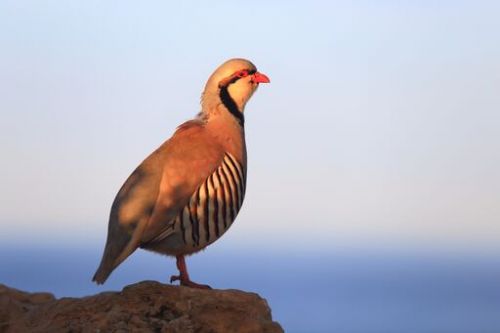 BASC, the Countryside Alliance, the Game Farmers’ Association and the National Gamekeepers Organisation are joining the government in defending a judicial review against the release of gamebirds in and near to designated sites.
BASC, the Countryside Alliance, the Game Farmers’ Association and the National Gamekeepers Organisation are joining the government in defending a judicial review against the release of gamebirds in and near to designated sites.
The High Court has announced today (23 June) that the case should be heard by the end of October. The substantive work to date by the shooting organisations through representations has meant that this will not impact on shooting this season.
read more »As interested parties the shooting organisations will be able to provide written and oral evidence prior to the hearing.
A spokesperson for the organisations, said: “The government has made its position clear, yet Wild Justice continue to take actions that necessitate them using valuable time and resources defending a court case at a time of national crisis. We are pleased to stand alongside government in facing down this challenge by this anti-shooting group.
“Due to Coronavirus, there is a massive amount of uncertainty in rural communities and yet Wild Justice continue to push their extremist agenda. We should be under no illusion that this review is yet another excuse for an attack on shooting.”
Antibiotic Use in Gamebirds MUST Fall Further (22nd April 2020)
 Click on the link below for the latest 2020 Joint Communication on Antibiotic Reduction in gamebirds.
Click on the link below for the latest 2020 Joint Communication on Antibiotic Reduction in gamebirds.
Template to record usage of Highest Priority Critically Important Antibiotics (15th April 2020)
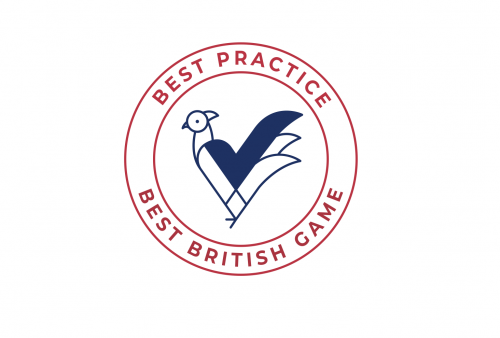 Highest Priority Critically Important Antibiotics (HI-CIA) must only be used as a last resort under veterinary direction. Details and justification for each use must be recorded on the British Game Alliance CIA use template, together with the results of sensitivity or diagnostic testing.
Highest Priority Critically Important Antibiotics (HI-CIA) must only be used as a last resort under veterinary direction. Details and justification for each use must be recorded on the British Game Alliance CIA use template, together with the results of sensitivity or diagnostic testing.
Click on the link below to download a copy of the template.
Defra ask court to dismiss Wild Justice judicial review (8th April 2020)
 In what is being described as extremely positive news by four leading shooting membership organisations, Defra has described Wild Justice’s judicial review seeking to restrict gamebird releases as ‘vexatious’ and ‘pointless’.
In what is being described as extremely positive news by four leading shooting membership organisations, Defra has described Wild Justice’s judicial review seeking to restrict gamebird releases as ‘vexatious’ and ‘pointless’.
Defra has asked the court to refuse Wild Justice permission to bring the claim and goes further in asking to be awarded its costs.
read more »Defra’s hard-hitting submission is in response to an attempt by Wild Justice to substantially amend their judicial review to ensure that the 2021 release of game birds and the review currently being undertaken by Defra on gamebird releasing is not carried out unlawfully. Defra noted in its submissions to the court that Wild Justice are ‘shooting at the wrong target’ and should be refused permission to amend the judicial review.
A spokesperson for the four shooting membership organisations (BASC, Countryside Alliance, the Game Farmers’ Association and the National Gamekeepers’ Organisation), who are registered as interested parties in the case, said: “We welcome the fact that the Government has taken such a strong line in resisting this wholesale change of approach from Wild Justice. This judicial review is clearly misdirected in terms of the law and serves no purpose. Resources and expertise should be going towards reviewing gamebird releases, not unnecessary and pointless court cases.
“Wild Justice’s application to amend the grounds of their judicial review is an admission that their claim was misconceived. As interested parties we ask that Wild Justice do the right thing and drop the case now and await the outcome of Defra’s review.”
Gamebird release safe for 2020 after Wild Justice abandon application to fast-track legal challenge (27th March 2020)
 The releasing of gamebirds this year will not be affected by court action after Wild Justice pulled back from asking for their legal challenge to be speeded up.
The releasing of gamebirds this year will not be affected by court action after Wild Justice pulled back from asking for their legal challenge to be speeded up.
Wild Justice has conceded that it was unlikely that any remedies could be ordered by the court to affect the release of gamebirds in the 2020 season and has, therefore, withdrawn its request for the case to be expedited.
read more »Defra was joined by BASC, the Countryside Alliance, the Game Farmers’ Association and National Gamekeepers’ Organisation in making legal submissions that said there would be significant adverse impacts on countryside management if the court had followed an accelerated process.
A final decision on whether to allow a judicial review to proceed is now expected to come later this year.
A spokesperson for the shooting organisations, said: “Registering as interested parties has helped ensure that Wild Justice cannot impact on this coming season. We said that the rural calendar was set in stone and that Wild Justice’s challenge simply came too late for their points to be taken into account for 2020. This is a crucial time of the year for the British countryside and we are glad that Wild Justice has taken a pragmatic decision.
“This does not mean the case is closed. There is still a threat to the way we manage the countryside so our work will continue to ensure shooting’s voice is heard in any future legal challenge.
“Our four organisations have united to do what it takes to ensure the future of sustainable shooting for the benefit of the rural economy, conservation and social well-being.”
Shooting organisations unite for legal battle (16th March 2020)
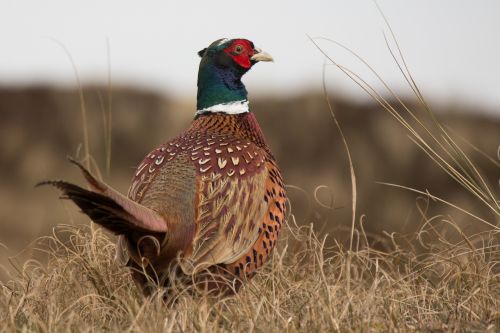 Four leading shooting organisations have joined forces to help fight Wild Justice’s latest judicial review against Defra on the legality of releasing gamebirds over designated sites.
Four leading shooting organisations have joined forces to help fight Wild Justice’s latest judicial review against Defra on the legality of releasing gamebirds over designated sites.
The British Association for Shooting and Conservation (BASC), Countryside Alliance, Game Farmers’ Association and the National Gamekeepers’ Organisation have jointly applied to become interested parties in the proceedings.
read more »Wild Justice claim that releasing birds, even at considerable distance, could damage a European Protected Site (EPS) and that no game bird releasing should be allowed unless an assessment has shown there will be no impact on the area.
A spokesperson for the organisations said: “This case has direct consequences for thousands of our members and supporters who shoot; many of whom are also responsible for the care and management of these sites.
“It is essential that the shooting community involves itself in the proceedings at the earliest possible stage so that we can present a robust, evidence-based case to the court.
“No matter the cost, our voice needs to be heard during the proceedings. And time is of the essence. Many people involved in shooting have already begun preparations for next season which carry significant financial burden.
“The countryside does not operate to the same calendar as the judicial system and it is essential that point is delivered loud and clear to the court. Livelihoods and the health of the countryside are at risk if those making the decisions get this wrong.
“In their attempt to attack shooting, Wild Justice are putting at risk the responsible management, use and enjoyment of the countryside by farmers, land managers and the public at large, as well as endangering the very wildlife and environment which they claim to be interested in protecting.”
Gamebird Sector Calls for Further Reductions in Antibiotic Use (6th February 2020)
 Organisations representing the gamebird rearing sector have called for a big push to further reduce the use of antibiotics in 2020, despite having already almost halved use overall since 2016.
Organisations representing the gamebird rearing sector have called for a big push to further reduce the use of antibiotics in 2020, despite having already almost halved use overall since 2016.
The Game Farmers Association (GFA), Countryside Alliance, National Gamekeepers’ Organisation and the Game and Wildlife Conservation Trust all want to see a continuing decline in antibiotic treatments used in the rearing of pheasants and partridges, in line with action currently being taken across all farm animal sectors in the UK.
read more »Their renewed call comes in response to figures for 2019 antibiotic usage calculated from prescriptions written by gamebird vets and collated by the GFA in collaboration with the Veterinary Medicines Directorate (VMD). These show a small increase of 7% in 2019, associated with very wet weather during the rearing season and an unprecedented need to treat sick birds hit by the very challenging disease Mycoplasma.
In the previous two years, the gamebird sector had succeeded in reducing antibiotic use by 51%, with antibiotics incorporated in gamebird feed slashed by 70%. The organisations say they want to see a return to reductions in 2020. Additional plans are already underway to improve game rearing systems and biosecurity, so that fewer birds become sick and need treatment.
A spokesman for the GFA said, "2019 was a tough year for game rearers. More birds than usual succumbed to sickness - associated in part with terrible weather conditions – and as a result vets prescribed more soluble antibiotics than in the year before, much of it to treat bad outbreaks of Mycoplasma. Antibiotic incorporated in compounded feeds fell yet again, however, for the fourth year in a row.”
The GFA is meeting with gamebird vets, the VMD and Responsible Use of Medicines in Agriculture (RUMA) before the 2020 rearing season gets underway to put in place further reduction targets and other measures to bring antibiotic use down.
Professor Peter Borriello, Chief Executive Officer of the VMD, said: “It is encouraging to see in-feed antibiotic use continue to fall in the gamebird industry, although the increase in in-water and overall antibiotic use is disappointing. However, the openness of the gamebird industry to collect and publish its usage data is to be applauded. Given the fact that, even with the 2019 increase, antibiotic use has still reduced by 49% since 2016, we are confident that game farmers, gamekeepers and their vets will investigate the reasons for last year’s increase, develop a plan of action and continue to focus on reducing the need to use antibiotics through improvements in husbandry, biosecurity and disease prevention.”
The gamebird sector has already made changes that are expected to contribute to further falls in antibiotic use. A new Game Farm Audit to ensure high standards, including disease prevention, has recently been launched by the British Game Alliance. Other industry bodies, including the GFA, are funding urgent research into gamebird diseases, including Mycoplasma.
A spokesman for the gamebird organisations said that all gamebird rearers needed to work with their vets towards further antibiotic reductions. “Much has been achieved in only three years and with new initiatives underway and growing investment in rearing equipment, we expect further reductions to follow.”
Chris Lloyd, secretary general for RUMA, said “The gamebird sector is to be congratulated for its progress to date, which has seen not just significant reductions in antibiotic use but positive changes in practice as well.
“What the sector is now experiencing is similar to that seen in other farm animal sectors, where the easier wins have been had and a change of approach is needed to gain the harder reductions.
“However, the united approach, transparency and accountability of sector leaders shows there is determination to overcome these inevitable setbacks. Their continued participation in the Targets Task Force and commitment to work with others to set further reduction targets post-2020 illustrate that the sector is determined to continue making progress.”
6 February 2020
Listen/watch last week's Avian Influenza Readiness Webinar (17th October 2019)
 If you missed last week's Avian Influenza Readiness Webinar, organised by UK Poultry Health & Welfare Group, or if you would like to listen/watch it again, you can by using the link below:
If you missed last week's Avian Influenza Readiness Webinar, organised by UK Poultry Health & Welfare Group, or if you would like to listen/watch it again, you can by using the link below:
Avian Influenza Readiness Webinar - listen again
17 October 2019
Natural England forced into shooting licence u-turn after government reinstates original system (16th June 2019)
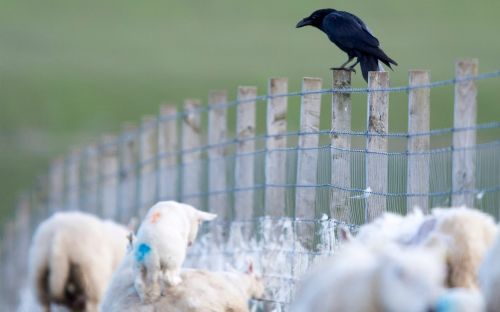 Defra has forced a shooting licence U-Turn after taking over from Natural England following a fiasco in which farmers were banned from protecting their land from pests.
Defra has forced a shooting licence U-Turn after taking over from Natural England following a fiasco in which farmers were banned from protecting their land from pests.
Read the article which appeared in the Telegraph on Friday 14 June. A great quote from our Chairman, as well as Tim Bonner, the chief executive of The Countryside Alliance.
Natural England forced into shooting licence u-turn after government reinstates original system
16 June 2019
read more »
Leading organisations respond to Defra's new general licences (16th June 2019)
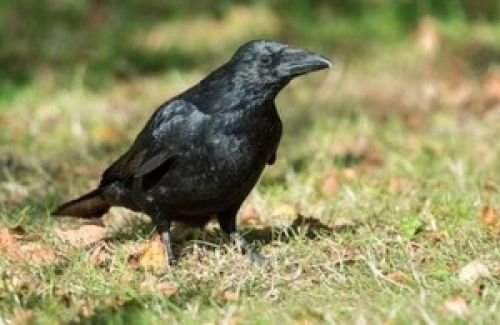 Read the latest press release below regarding the current situation on general licences.
Read the latest press release below regarding the current situation on general licences.
Genuine progress has been made and three new general licences released by Defra today (14 June 2019) are fit for purpose in most circumstances. However significant work still remains regarding protected sites, the leading countryside organisations have said.
Representing a range of rural stakeholders, the chief executives of BASC and the Countryside Alliance met environment secretary Michael Gove MP this morning to discuss Defra’s new licences.
read more »The new licences cover the majority of activity which is undertaken in the English countryside for pest control, crop protection and also satisfy the need to provide control to protect public health.
However, the organisations have told Defra they cannot agree the approach to “protected sites”, home to much of our most important wildlife, where there will be additional licence requirements. This will be captured by a further Defra consultation this summer.
BASC chief executive Ian Bell said: “The organisations have worked extensively in the background with Defra and we are content that the new, additional general licences issued today will be fit for purpose in many areas but significant concerns remain around protected sites.
“We appreciate that it’s not a perfect situation and there may still be some confusion; the organisations will continue to be on hand to steer our members through. The organisations have told Defra that we expect any gaps to picked up by the consultation in the summer.”
Countryside Alliance chief executive Tim Bonner said: “Whilst we remain very concerned about the initial decision by Natural England to revoke the general licences we are grateful for the Secretary of State’s intervention.
“Since Defra has taken back control of the licences we have seen significant progress and for most people managing most species the situation is now back as it was. The discussion does not, however, stop here and we will seek to resolve the outstanding issues as part of the planned consultation later this year.”
Liam Bell, NGO chairman, said: "Two cheers to Defra for sorting out most of the mess left after NE's licence revocations in April. We reserve our third cheer until they have also addressed the remaining issues in protected sites. The team-working between the shooting organisations has been great on this and a big reason for the turnarounds gained so far. We look forward to playing our part in finishing the job."
Amanda Anderson, director of the Moorland Association, said: “European designated sites will not be covered by these new general licences. If owners or occupiers have not yet applied for an individual licence to carry out vital work to protect chicks, they should.
“We have made the point forcefully to Defra that it is almost beyond belief that precious areas that support incredible bird life are being left out, areas that have been designated for their important birds and habitats. Pest bird control, certainly in the uplands, has been a contributing factor to their success.
“Making conservation in these areas harder to achieve is a disaster for our wildlife. Defra's precautionary approach and EU rules could preside over the extinction of our best loved moorland birds like the curlew, lapwing, golden plover, if a way forward cannot be found.”
Country Land and Business Association (CLA) president, Tim Breitmeyer said: “We are pleased that progress has been made and that the concerns of rural groups have been taken on board. We will keep working collaboratively with Defra and others to help resolve any outstanding issues.
“This includes engaging with the future consultation this summer, ensuring the emergence of a robust and fit-for-purpose licensing system which protects the interests of farming and food production, as well as the conservation of wildlife.”
Game Farmers' Association chairman Dominic Boulton said: "This is good news. Our members will now be able to get back to business and control problem birds as before. Livelihoods had been threatened by NE's revocations but the situation is now much improved."
Sir Jim Paice, GWCT chairman, said: “We must congratulate Defra for producing these new licences so quickly under difficult circumstances. They may not be perfect, but it is clear they carefully considered all 4,000 consultation responses which provided them with the information they needed to reach this stage. The GWCT will continue to work closely with Defra to share our science to ensure those that manage our countryside have the right tools to do the job.”
16 June 2019
Anger as General Licences are Revoked Without Notice (24th April 2019)
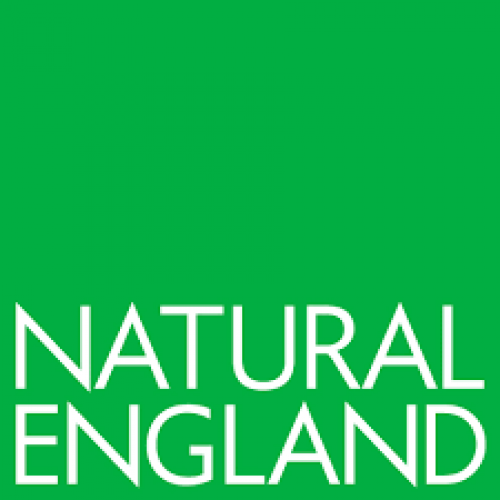 The Game Farmers' Association is advising all members that Natural England (NE) is revoking the three main General Licences for the control throughout England of birds such as crows, magpies and woodpigeons.
The Game Farmers' Association is advising all members that Natural England (NE) is revoking the three main General Licences for the control throughout England of birds such as crows, magpies and woodpigeons.
The shock decision, which applies from one minute to midnight on Thursday 25 April 2019, was announced with no prior warning and at less than 48 hours notice. It has been greeted with anger and derision by the shooting community and its representative organisations.
read more »Game farmers often control corvids around their laying pens and rearing fields in the spring but once the licences are revoked, that essential protection will become illegal.
NE says that it will introduce a new replacement online system for applying for individual licences, under which some control may still be lawful, but as of now no such system is in place. It is hard to see that it could possibly replace, at speed, the daily use of the General Licences by thousands of farmers, gamekeepers and pest controllers.
GFA Chairman, Dominic Boulton, said it was a disgrace that NE was effectively changing the law at no notice, apparently panicked into an over-reaction by a legal challenge mounted by anti shooting campaigners. (No equivalent revocations have been made in Scotland and Wales, despite their General Licences having exactly the same legal basis).
"We had no more notice of this fiasco than anyone else," said Dominic. "It is exactly the sort of shambles that game farmers could do without at this critical time of year when they are trying to protect eggs and chicks from predation by corvids."
The shooting organisations are working together to get the decision reversed or a workable replacement licensing system in place as soon as possible.
For more information we recommend viewing the websites of BASC, the Countryside Alliance and the National Gamekeepers' Organisation.
24 April 2019
BVPA working group recommendations for Mycoplasma management in gamebirds (26th February 2019)
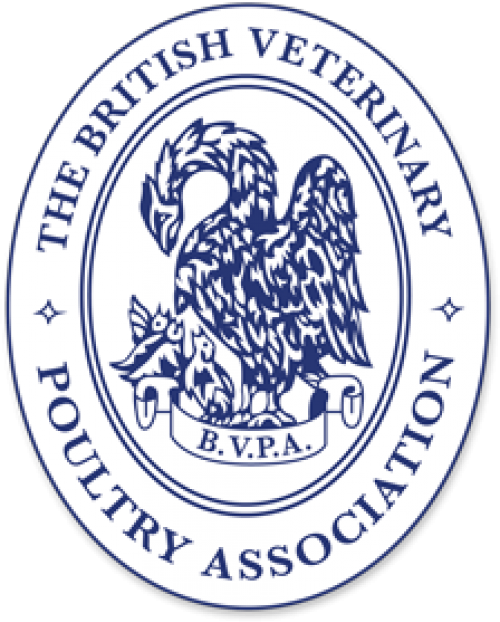 The British Veterinary Poultry Association (BVPA) working group has now agreed its recommendations on Mycoplasma management in gamebirds – please click on the link below to read the recommendations.
The British Veterinary Poultry Association (BVPA) working group has now agreed its recommendations on Mycoplasma management in gamebirds – please click on the link below to read the recommendations.
BVPA working group recommendations for Mycoplasma management in gamebirds
26 February 2019
Gamebird Producers Slash Antibiotic Use (24th October 2018)
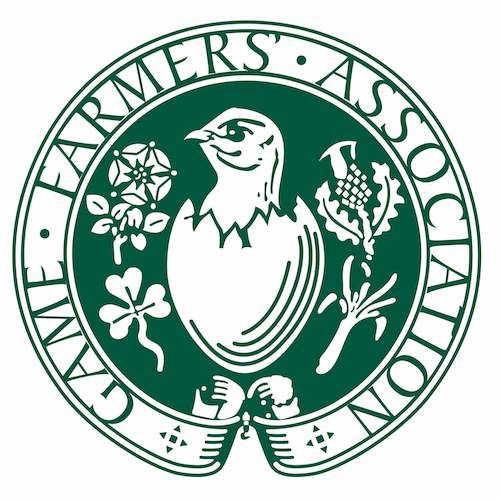 Figures released today (24 October 2018) show that in the two years since the gamebird sector rolled out its voluntary campaign to reduce antibiotics, overall use has fallen by 51%, with antibiotics incorporated in gamebird feed slashed by 70%.
Figures released today (24 October 2018) show that in the two years since the gamebird sector rolled out its voluntary campaign to reduce antibiotics, overall use has fallen by 51%, with antibiotics incorporated in gamebird feed slashed by 70%.
The figures, announced by The Game Farmers’ Association (GFA), have been calculated in collaboration with Veterinary Medicines Directorate (VMD) and are based on prescriptions written by gamebird vets throughout the UK. [Note: All antibiotic use must be prescribed by a vet. Gamebirds are reared in the spring and released into the countryside in the summer, which is why the 2018 results are already available].
A spokesman for the GFA said, "A further year of good engagement by the gamebird sector in 2018 has brought overall usage of antibiotics down by another 24% this year. Together with last year’s substantial fall, this confirms that the industry has halved antibiotic use since our voluntary campaign was rolled out in 2016.”
Detailed analysis of the 2018 result shows that in-feed use fell by 35% this year, whilst use of AB in soluble treatments fell by 10%. The difference reflects a continuing focus on treating actual disease outbreaks rather than feeding medicated rations 'just in case', and also the need to treat some late disease outbreaks associated with the excessively hot summer.
Professor Peter Borriello, Chief Executive Officer of the VMD, said: “Reducing antibiotic use in gamebirds by a further 24% in 2018 and 51% over the last two years is an impressive achievement. The Game Farmers Association should be congratulated for mobilising the industry, as should the game farmers, gamekeepers and their vets for their commitment in bringing down antibiotic use. We encourage everyone to continue this good work.”
Chris Lloyd, Secretary General of Responsible Use of Medicines in Agriculture Alliance (RUMA) , which is coordinating work across all livestock sectors to drive responsible use of antibiotics in the face of worldwide concerns about antimicrobial resistance, said: “We welcome these hugely encouraging results, not least as the continuing falls in antibiotic use in gamebirds have been achieved through a real focus on good management and improved biosecurity.”
The reductions were also welcomed by the British Association for Shooting and Conservation (BASC), the Countryside Alliance (CA), the Game and Wildlife Conservation Trust, the National Gamekeepers’ Organisation and the Scottish Gamekeepers’ Association.
Jack Knott, Countryside Alliance Campaigns Manager, said, "The whole shooting community can be justifiably proud of the progress made over the past two years, but we must ensure that this is only the end of the beginning. These excellent results must encourage us to keep driving down the use of antibiotics."
Glynn Evans, BASC's head of game and deer management, said: "These are encouraging results due to the whole sector working together. It is important that we continue to keep up the momentum. This year's performance is another significant step in the campaign to continue reducing antibiotic use."
The lessons learned from this year’s gamebird rearing season will be collated during November at a meeting of specialist vets and representatives of the game feed trade, hosted by the Game Farmers’ Association. Advice arising from that meeting will be provided free of charge to all game rearers in pursuit of further antibiotic reductions next year.
RUMA win prestigious award for antibiotic work (2nd July 2018)
 RUMA's Target Task Force initiative, in which the GFA plays a major role, won a prestigious international award for antibiotic reduction work last week, beating off many rivals, including many in the human health sector. This award recognises our AB reduction work.
RUMA's Target Task Force initiative, in which the GFA plays a major role, won a prestigious international award for antibiotic reduction work last week, beating off many rivals, including many in the human health sector. This award recognises our AB reduction work.
The third Antibiotic Guardian awards took place on 27th June 2018. They celebrate the work of healthcare professionals across England in tackling antimicrobial resistance and form part of the ongoing Antibiotic Guardian campaign which is led by Public Health England. Click here to read the Press Release which RUMA issued after their win in the Prescribing and Stewardship award category.
read more »For details of other winners and the runners up, visit Antiboitic Guardian Awards 2018 Awards website.
GFA host important fact-finding visits to a member’s game farm (22nd May 2018)
The Game Farmers’ Association hosted two important fact-finding visits to a member’s game farm in late May 2018.
One was for a team of officials from Defra and the Animal and Plant Health Agency (APHA), and the other was for officials from mainland Europe.
read more »On 21st May, the Game Farmers’ Association hosted two important fact-finding visits. The first was for a team of officials from Defra and the Animal and Plant Health Agency (APHA) who in particular deal with outbreaks of notifiable avian diseases such as Bird Flu.
During incursions of these diseases into the UK, not only do game farmers have the worry that their birds might become infected, they also have to contend with control measures such as movement bans and orders to separate kept birds from wild birds. These rules are often inevitably designed for the much larger poultry sector and not always appropriate for game.
The officials were shown how gamebird production necessarily differs from indoor poultry and how restrictions and licensing decisions can help or hinder the game sector, worth a staggering £2.2 billion to the UK economy each year.
The second visit was by officials from mainland Europe working to reduce antibiotics across all livestock sectors. Two were from DG Sante, the EU department of animal health, whilst others work within EU member states; France, Belgium and the Netherlands. The experts included individuals from Italy and Ireland.
Antibiotic reduction is essential to preserve these vitally important medications for human and animal health and the visitors were keen to hear how the GFA is spearheading a successful campaign to bring AB use down throughout the UK gamebird sector. Good bird management and hygiene are key starting points for AB reduction and it is therefore no surprise that during these two important visits, biosecurity was tight.
The GFA hosts similar fact-finding visits for politician and officials whenever they may help the long term future of the game farming profession.
Gamebird Sector Cuts Antibiotics by 36% (27th October 2017)
 Organisations involved in shooting and gamebird management have welcomed a big fall in the amount of antibiotic used in the rearing of pheasants and partridges in the UK.
Organisations involved in shooting and gamebird management have welcomed a big fall in the amount of antibiotic used in the rearing of pheasants and partridges in the UK.
Figures endorsed by the Veterinary Medicines Directorate (VMD) have been released today showing that antibiotics used in gamebirds were brought down voluntarily by 36% in 2017 compared to 2016, including a 53% reduction for those administered in gamebird food. (Gamebirds are reared in the spring, which is why the 2017 results are already available).
The 36% fall comfortably exceeds the 25% official reduction target for gamebirds in 2017, developed by the sector and agreed by the VMD earlier this year. The actual reduction was calculated from veterinary prescribing records. Vets are responsible for prescribing all antibiotics administered to gamebirds.
The encouraging results come at a time when all livestock sectors have been asked by Government to reduce their use of antibiotics in the face of global concerns about antimicrobial resistance – the evolution of bugs that will not respond to treatment with antibiotics.
A spokesman for the above shooting and gamebird management organisations said, “These large reductions have been achieved voluntarily and in just one year through the hard work of game farmers, gamekeepers, the veterinary profession and the game feed trade. We welcome today’s results as an excellent start to our continuing campaign for antibiotic reduction.”
Professor Peter Borriello, Chief Executive Officer of the VMD, said, “The significant reductions achieved in 2017, the same year that the sector started to collect and scrutinise its antibiotic usage data, highlight the strong commitment of the game bird industry to bring down antibiotic use. The reductions achieved in 2017 are to be highly commended, and are an encouragement to all to continue the good work.”
John Fitzgerald, General Secretary of RUMA (Responsible Use of Medicines in Agriculture Alliance), whose conference, ‘Facing Up to the Antimicrobial Resistance Challenge’ was held in London today, said, “We congratulate our colleagues in the game sector on their excellent 2017 antibiotic reduction results. The enthusiasm and commitment with which the whole sector has engaged with this process is exemplary and we have every confidence that they will achieve further reductions in future years.”
Antibiotics are used in gamebird rearing, as in other livestock sectors, for the treatment of natural diseases. Their use is sometimes essential for welfare reasons but administration of antibiotics can be reduced through good biosecurity and correct management, in close liaison with specialist vets.
The lessons learned from this year’s gamebird rearing season will be collated during November at a meeting of vets being hosted by the Game Farmers’ Association. Advice arising from that meeting will be provided free of charge to all game rearers in anticipation of further antibiotic reductions next year.
GFA Opens Doors to Defra (30th July 2017)
The Game Farmers' Association (GFA) this week showed Defra round a game farm in the Home Counties where the main issue under discussion was the prevention of Bird Flu.
The visitors were from Defra and the Animal and Plant Health Agency, which together work to keep the country free from Bird Flu and oversee its eradication when outbreaks occur.
Bird Flu is a notifiable disease currently circulating world-wide in various forms. It can affect all birds, captive or wild, and is often fatal, costing bird farmers dearly. Outbreaks impact on trade and some strains can also pass to humans, although this is rare. The Government has strict rules for eradication and for keeping birds in ways that reduce the risk of outbreaks.
The visit was an opportunity to build on the excellent cooperation that exists between Government and the gamebird sector. Discussion subjects included the restrictions that can apply on game farms during outbreaks and also best practice for keeping pheasants through the winter for egg production.
A GFA spokesman said, "This was a valuable 'peacetime' visit to review the overall disease situation and the often complex regulations that apply. It was also useful for more Government officials to see first-hand a game farm in operation and the measures that are constantly in place to minimise infection."
